Go to the Qinghai -Tibet Plateau and see the mistakes!
Author:Institute of Geological Earth Time:2022.07.11


"

This article
Second Qinghai -Tibet Science Examination Team
Jointly produced with the Star Research Institute
The Green Tibet Plateau is widely
White Snow Mountain, Gray Yellow Earth, Qingqing Mucao
Most of the colors here
But there is another color
Although it only accounts for 2% of the Qinghai -Tibet Plateau area
But it brings different agility to this vast land
It is
blue
And those who make these blue are
Tibetan Plateau
lake
(Tibetan Namu Erumi Tianmen, in the distance is the main peak of Nianqing Tang Gula Mountain, photographer@()
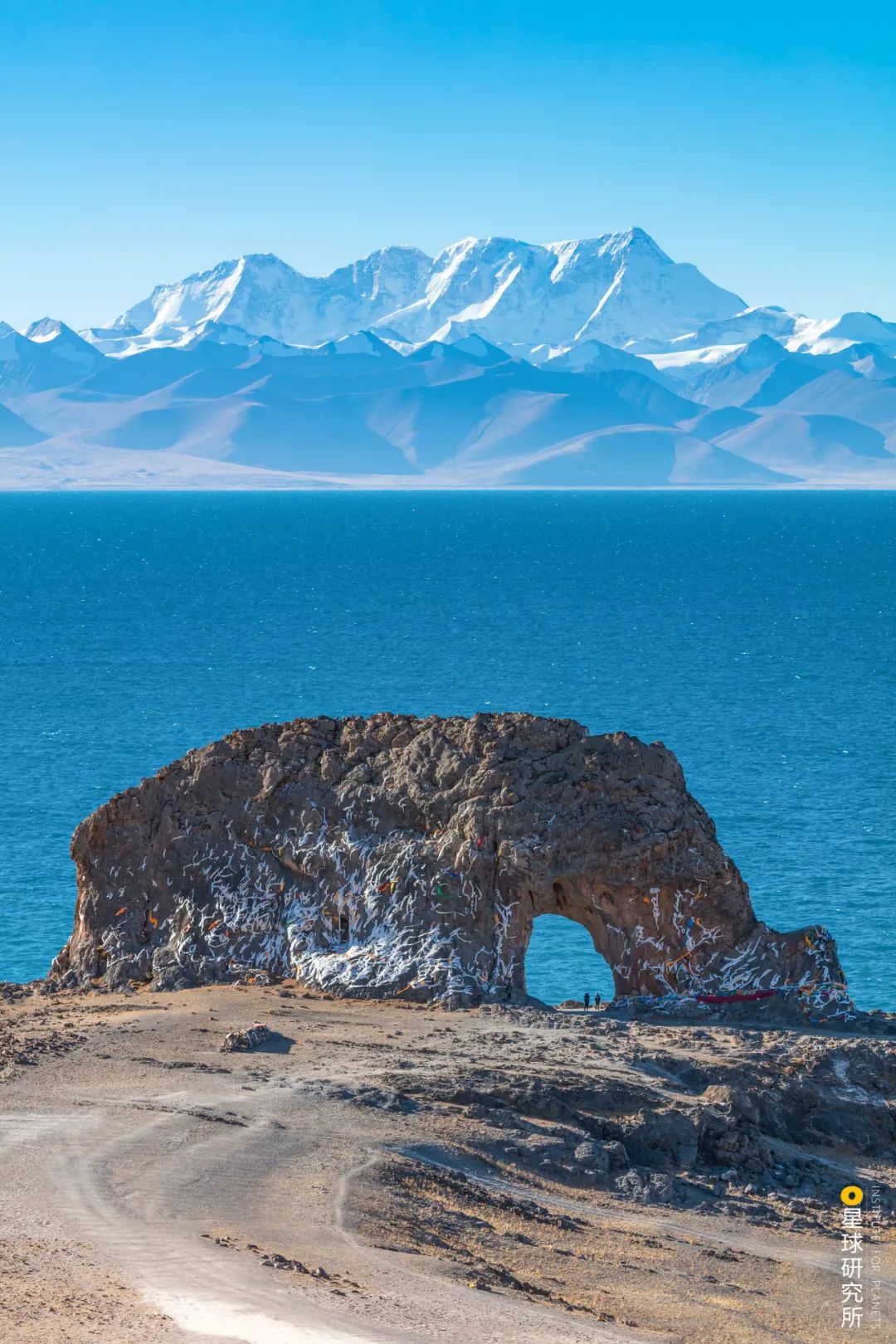
Compared to
Lakes of many lakes in the eastern part of my country
This blue looks very unique
(Please watch it horizontally, the wrong Ewan, the wrong Ewan, the photographer@(()

Whether in Gaoshan Canyon
Still in a flat hinterland
You can see these blue figures
they
Can be called the Qinghai -Tibet Plateau
"Blue Manufacturing Machine"
(Please watch the horizontal screen, the distribution of the Qinghai -Tibet Plateau lake, the blue of the lake on the map is not the real lake color, the drawing@(/Planet Research Institute)

after all
What did you create these blue?
In our lifetime
Will they always exist?
01
Blue | Because of pure
Qinghai -Tibet Plateau
The mountains are stretching, the peak is linked
The entry of water vapor is hindered
Most plateau land
All showing drought
(Said the distribution of dryness in the 2010 Qinghai -Tibet Plateau in the 2010s, drawing@((/Planet Research Institute)
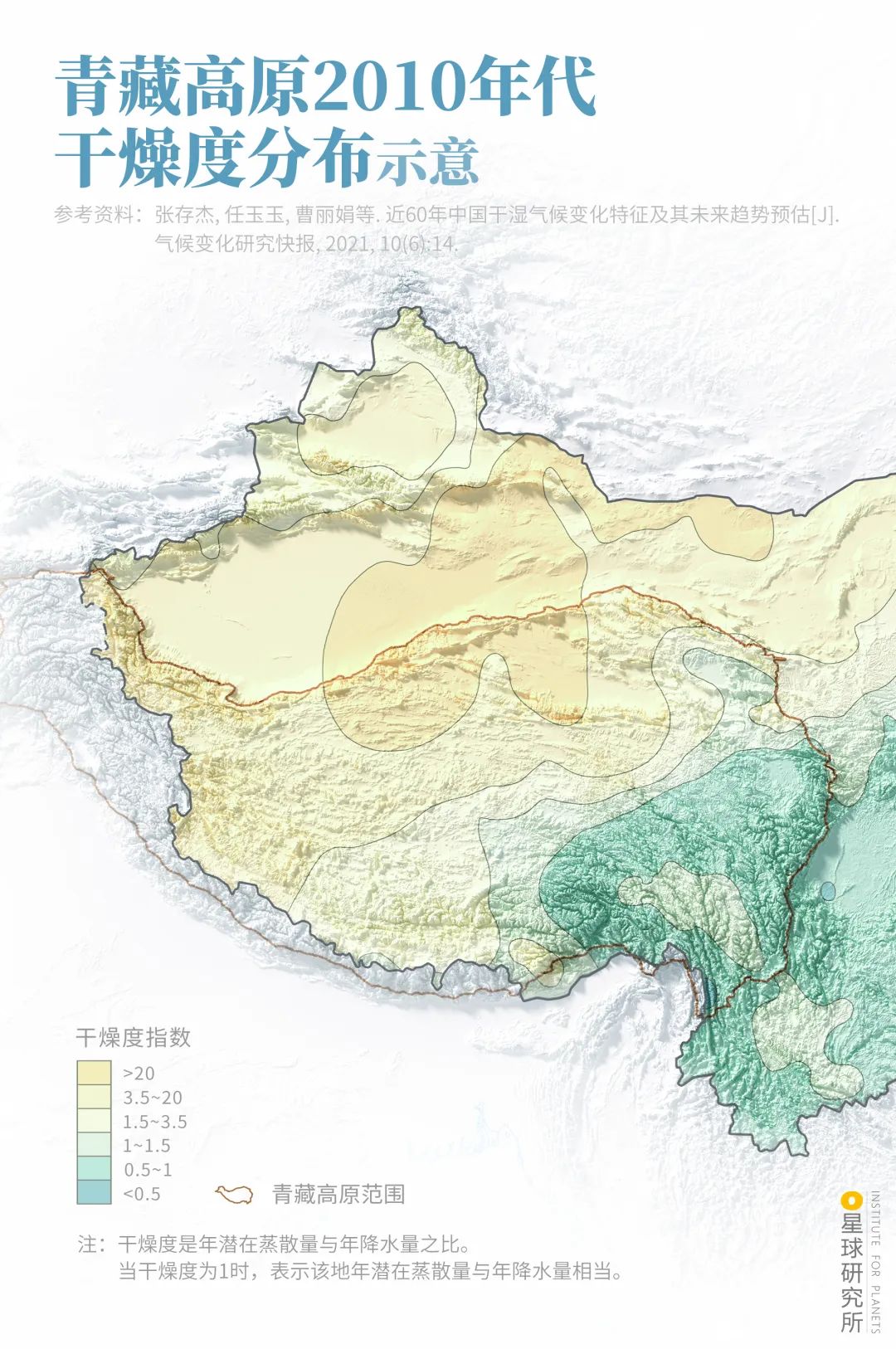
But although the mountains are blocking
But its towering posture
It also allows water vapor to form a solid precipitation such as snow at a high place
Glacier forms glaciers after accumulation and compacking
As a result
Solid reservoir
(Luo Benqiangga Glacier and Dongsheng Lake, located in Shigatse, Tibet, photographer@()
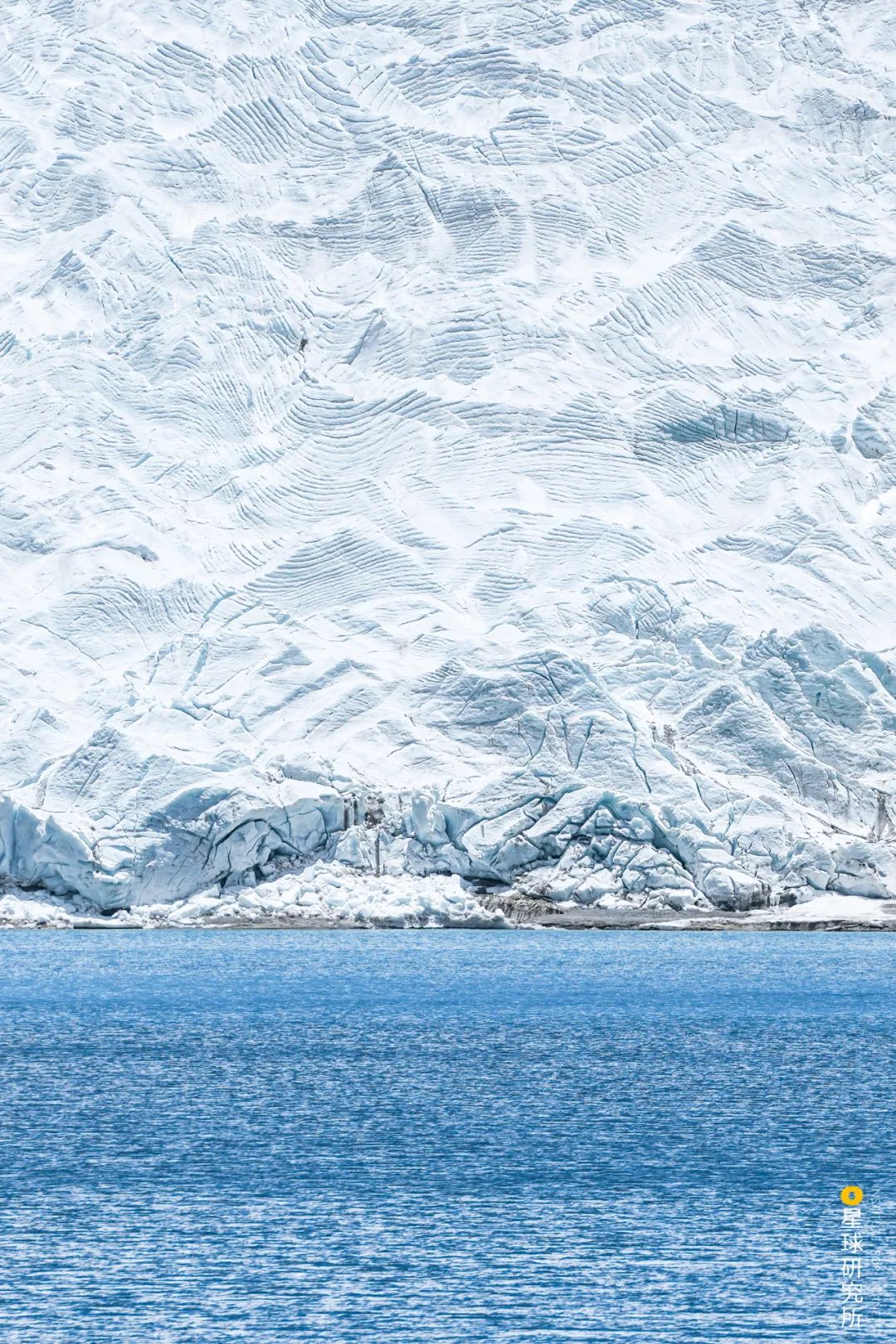
More than 47,000 square kilometers of glacier area
And more than 4,300 cubic kilometers of ice reserves
Achieve the name of the Asian Water Tower of the Qinghai -Tibet Plateau
And when the glacier melts
Rongshui gathers precipitation and so on.
Low -lying on the surface
Another important form of gathering into the Asian Water Tower
lake
(Jiong Puwai, located in Changdu, Tibet, photographer@((()
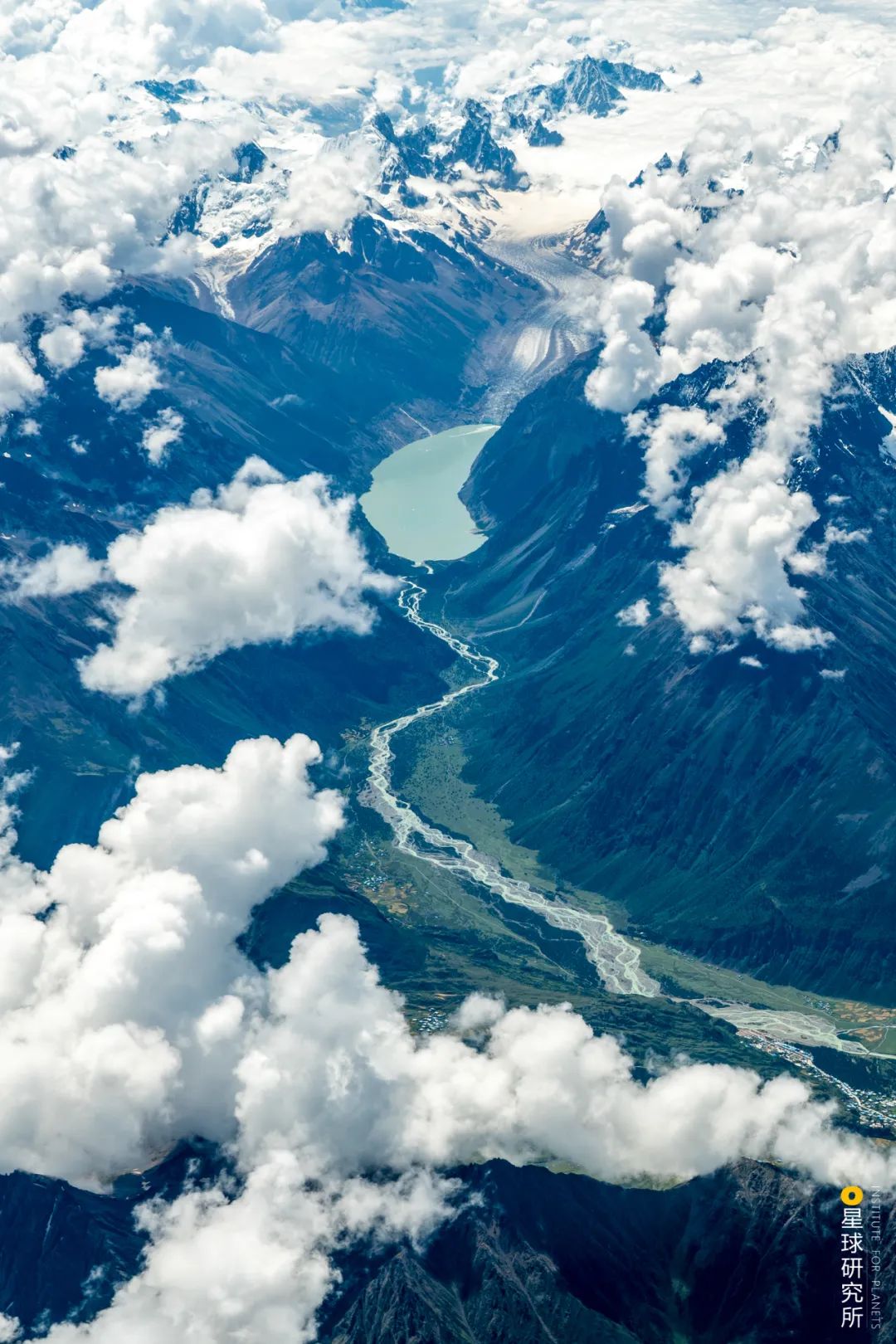
Guangbu Glacier
Most lakes on the Qinghai -Tibet Plateau
It's not far from the water source
How short is the water flow in the lake
The debris particles they carry are therefore less
Plus
The temperature is low, the lake is salty and other reasons
The growth of microorganisms in the lake is suppressed
How clear and clean lake water
Rarely turbid state
(Lake Joner, Dongtai, located in Haixi, Qinghai, photographer@()
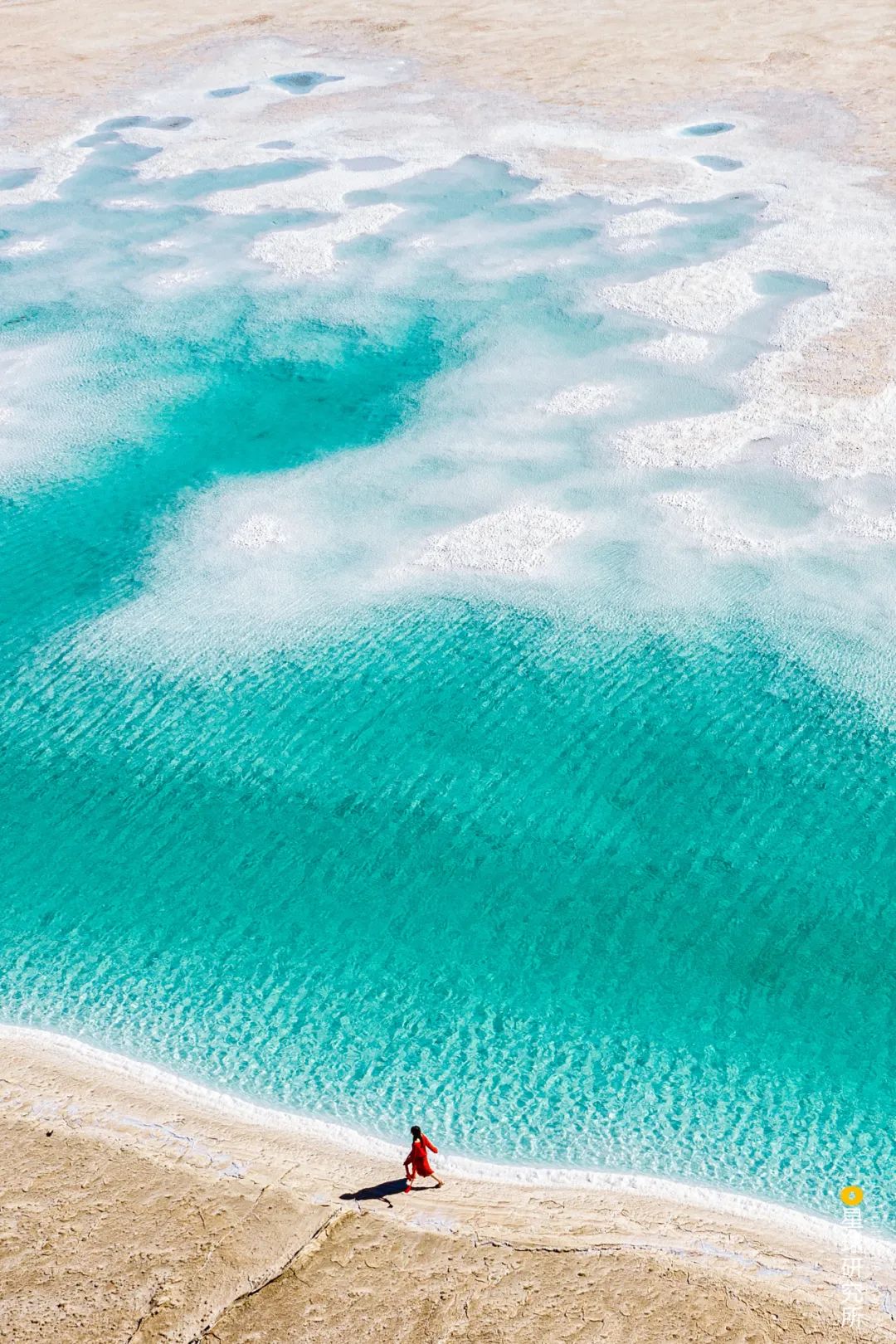
When the sun is shot into the lake
Huang Guang and other long waves can be visible to the light into the lake and is absorbed and absorbed
Short wave visible light such as blue light is prone to scattering
So we are captured by our eyes
Blue manufacturing machine
It was fully launched around the plateau
(Oka Rinpoche and Mada Yongwu, located in Ali, Tibet, there are Tibetan wild donkeys next to the lake, photographer@()

Lake
Most of the lake color is light blue
And the color of the bottom of the lake will be superimposed
Milk Sea in Daocheng, Sichuan
Because of the milk white lake bottom
And the lake color is light
(Sichuan Daocheng Aden Milk Sea, Photographer@(()

When the lake is deep
The bottom of the lake is unsatisfactory
Lake color is the ultimate dark blue
Haizi Group in the upper reaches of Nuogi Lang Waterfall in Jiuzhaigou
Deep in the lake
The blue color is presented
(Nuo Rilang Waterfall in Jiuzhaigou, Sichuan and Norlang Qunhai, the upper reaches of it.
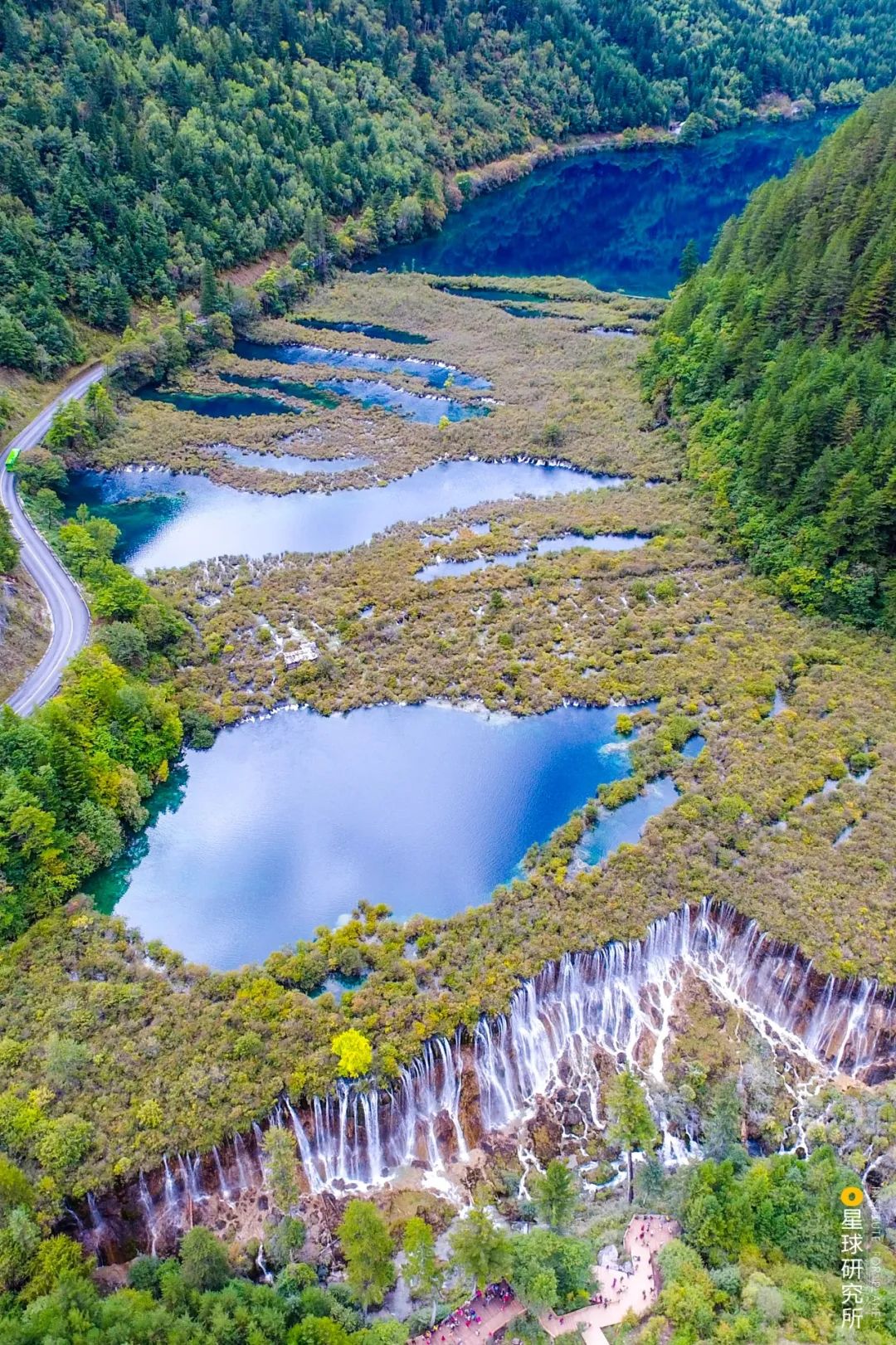
Represents pure blue
Also give lakes a sense of holyness
This may be many lakes
One of the reasons for the Holy Lake
Three Holy Lakes in Tibet
Nami Wushu, Mada Yongwu, Yang Zhuo Yongwu
Lake
Nothing to have the sea -like sacred blue blue
(Nami Wushu, located at the junction of Lhasa and Naqu, Tibet. The lake is 3/5 in Bango County, Naqu City.
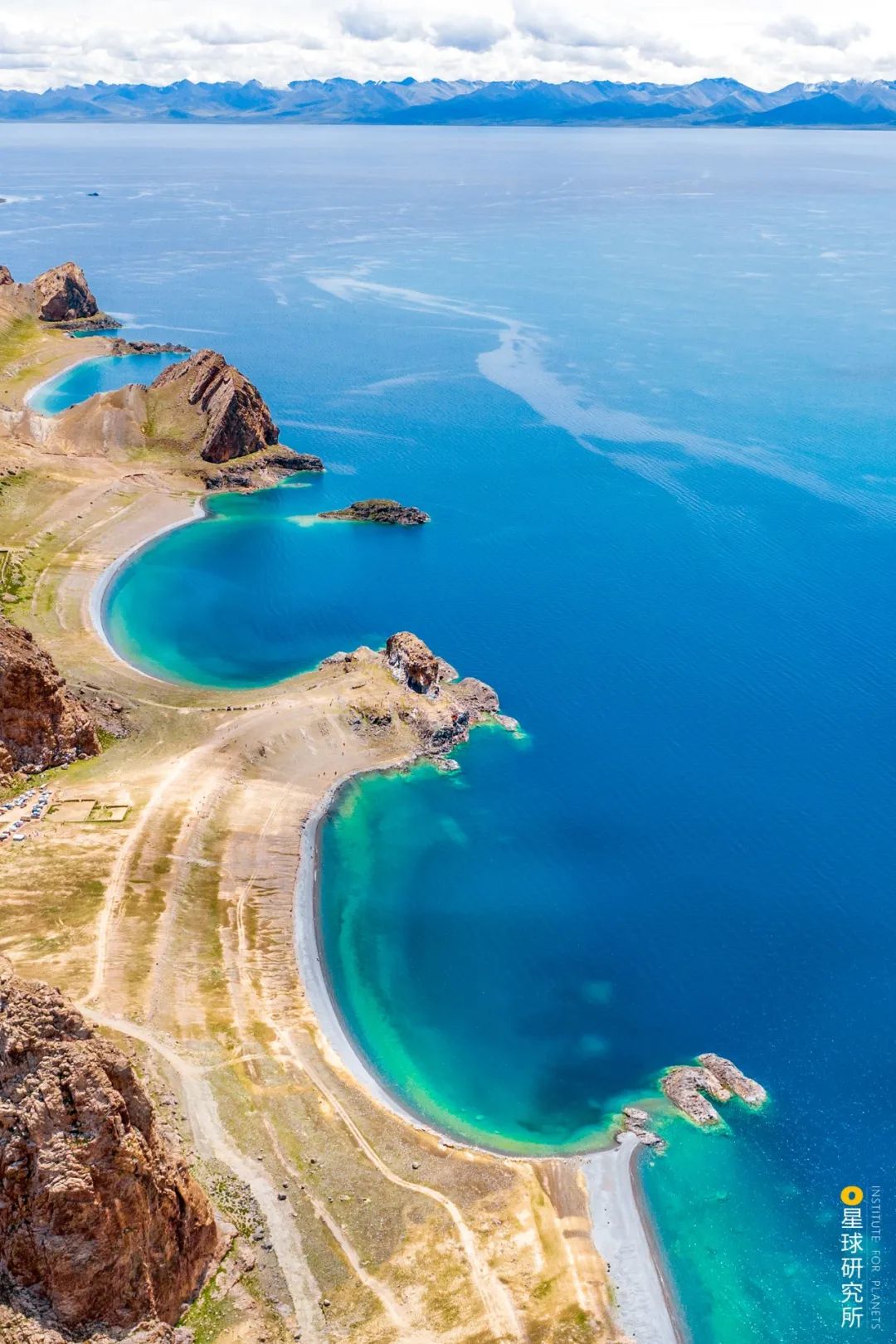
Sichuan Daocheng Yading Saint Lake
Milk Sea, Five Color Sea, Pearl Sea
Although the lake is shallow
But there is no sense of holyness
(Sichuan Daocheng Aden Five Sea, Photographer@(()

also
Jie White God Mountain
Always accompany Saint Lake
(Dang Yongwan, located in Naqu, Tibet; in the distance, Daguo Shenshan, two Tibetan original antelopes seemed to look at Shenshan in the distance, photographer@()
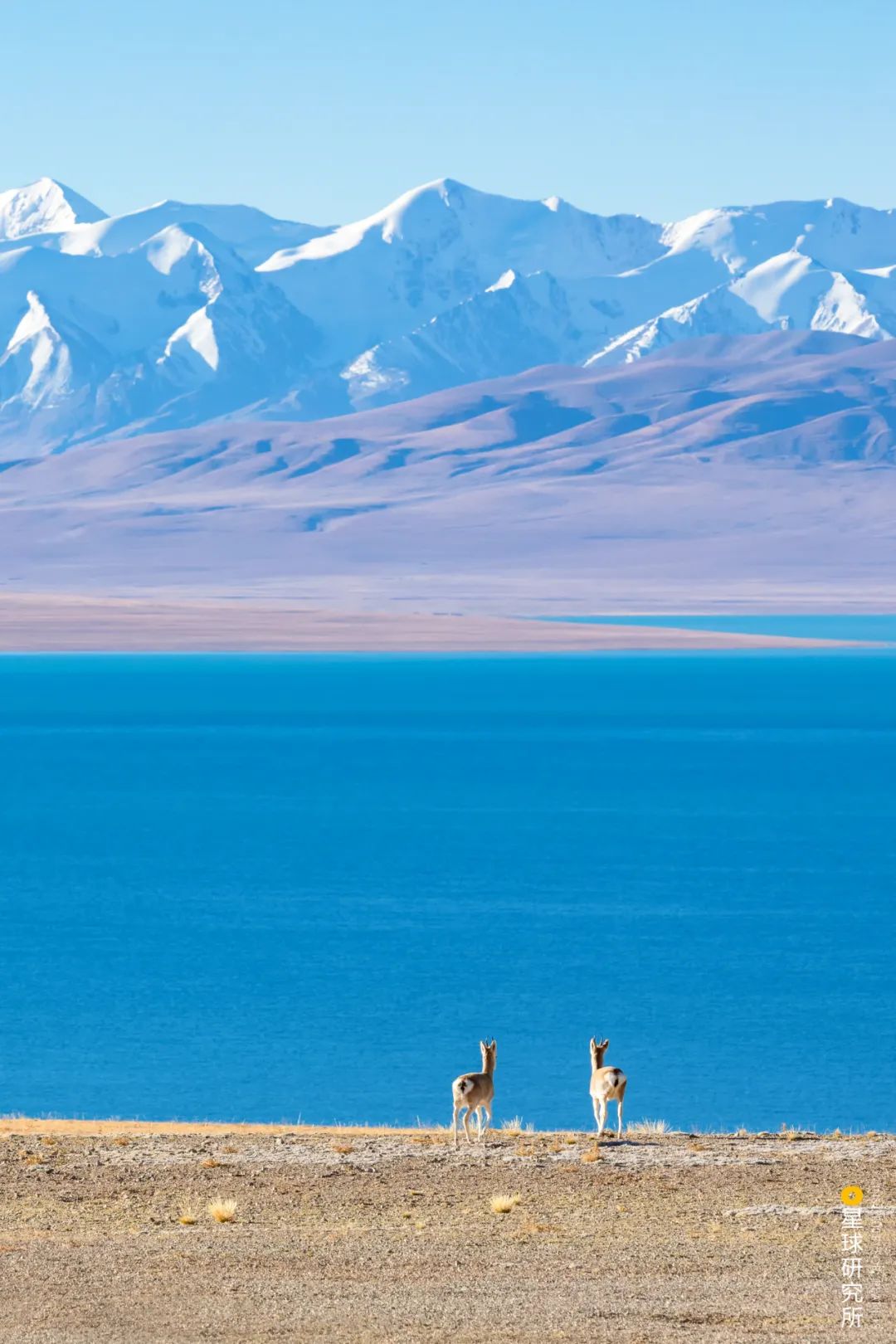
Rare birds
Often gathers the lakeside
(Mada Yongwao, located in Ali, Tibet, is the only freshwater lake in the three major holy lakes in Tibet; the black -necked crane on the shore of the lake, the Namani Snow Mountain in the distance, the photographer@()

Mani pile to pray for blessings
Also appear in the lake shore
all above
The sacred and greatness of the Holy Lake
(Punmong Wo and Mani on the shore of the lake; Punmong is located in the south of Tibet, located in the direction of Yang Zhuoyong's southwest, photographer@(晓 晓 晓)
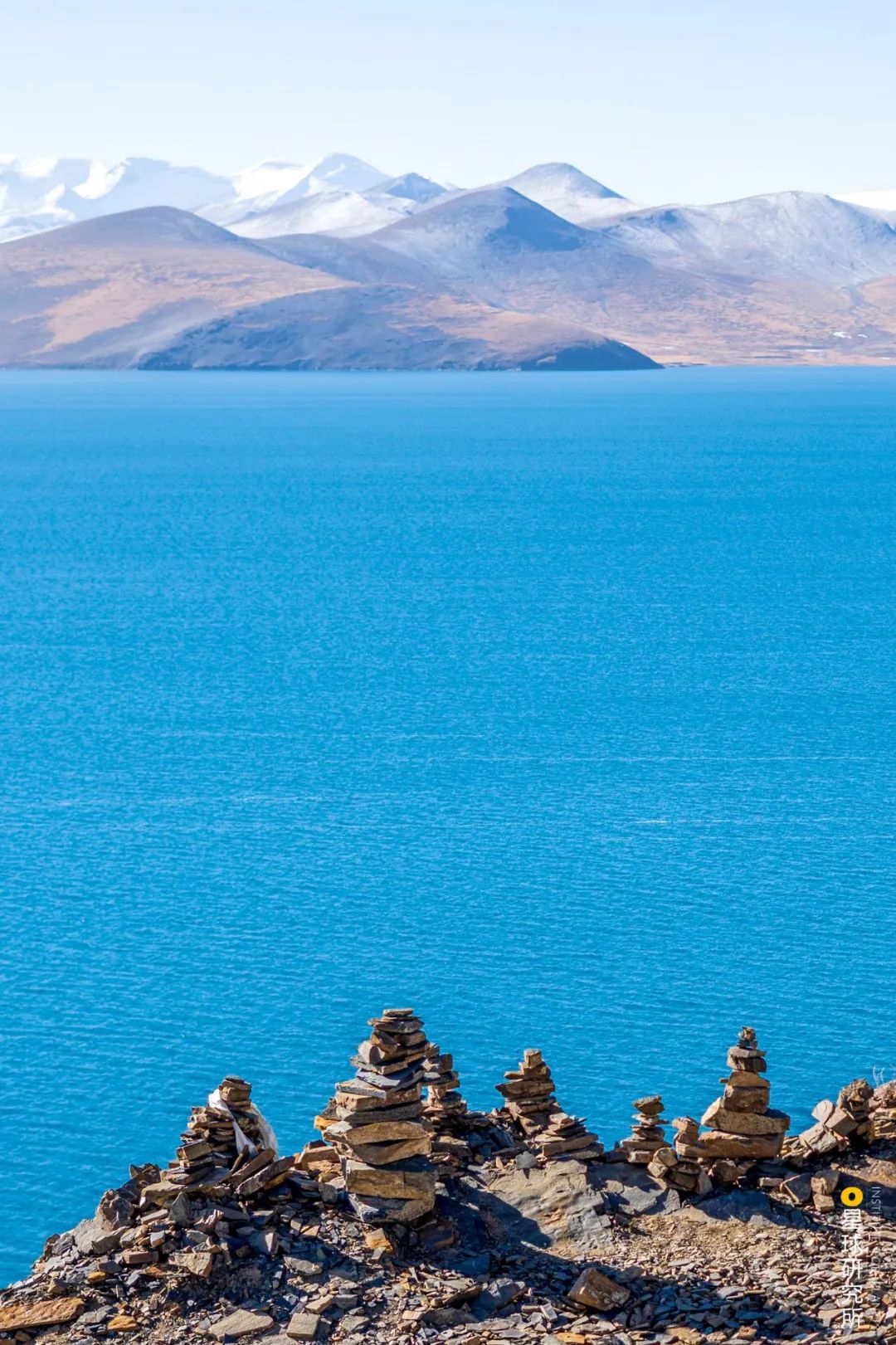
then
Different blue tones
Represents pure purity
Highlighting sacred
Shining on this plateau
But these blue
Except for different colors
They are different in size and thousands of forms
What kind of laws are there?
02
Blue | Quanzhitian
From the size of the lake
Most of the big lakes
All located outside the rugged mountains
In the hinterland or mountain basin of the Qinghai -Tibet Plateau
China's largest lake
Qinghai Lake
It's such a super big lake
It's like a huge sapphire
Inlaid in the northeast corner of the Qinghai -Tibet Plateau
(Please watch horizontal screen, Qinghai Lake, photographer@Zhang Yang's Xiaoqiang)

The lake around Qinghai Lake is not dense
Northeast of the Qinghai -Tibet Plateau
This is the norm of many large lakes
But in the southwest, there are differences
Especially in Gangdis-north of Nianqing Tang Gula Mountain
The southern area of the Qiangtang Plateau
East -west lake dense belt
Through the nearly half of the Qinghai -Tibet Plateau here
Because the lake is wrong in Tibetan language
This multi -lake area is therefore called
"Mistake again"
(Please watch horizontal screen, the distribution of the Duohu area of "mistakes and wrong", drawing@((/Planet Research Institute)

More than 100 million years ago
Here is still an ocean
As the Indian Ocean sector continues to rush towards the Asia -Europe sector
The area of this ocean is gradually compressed
And gradually disappeared in Longzhong of the Qinghai -Tibet Plateau later
Leave a relatively low -lying area and many small pots
"One mistake again" after water storage is born
(Please watch horizontal screen, and the Tibetan antelopes running before the mistake, taken in Nima, Tibet, photographer@()
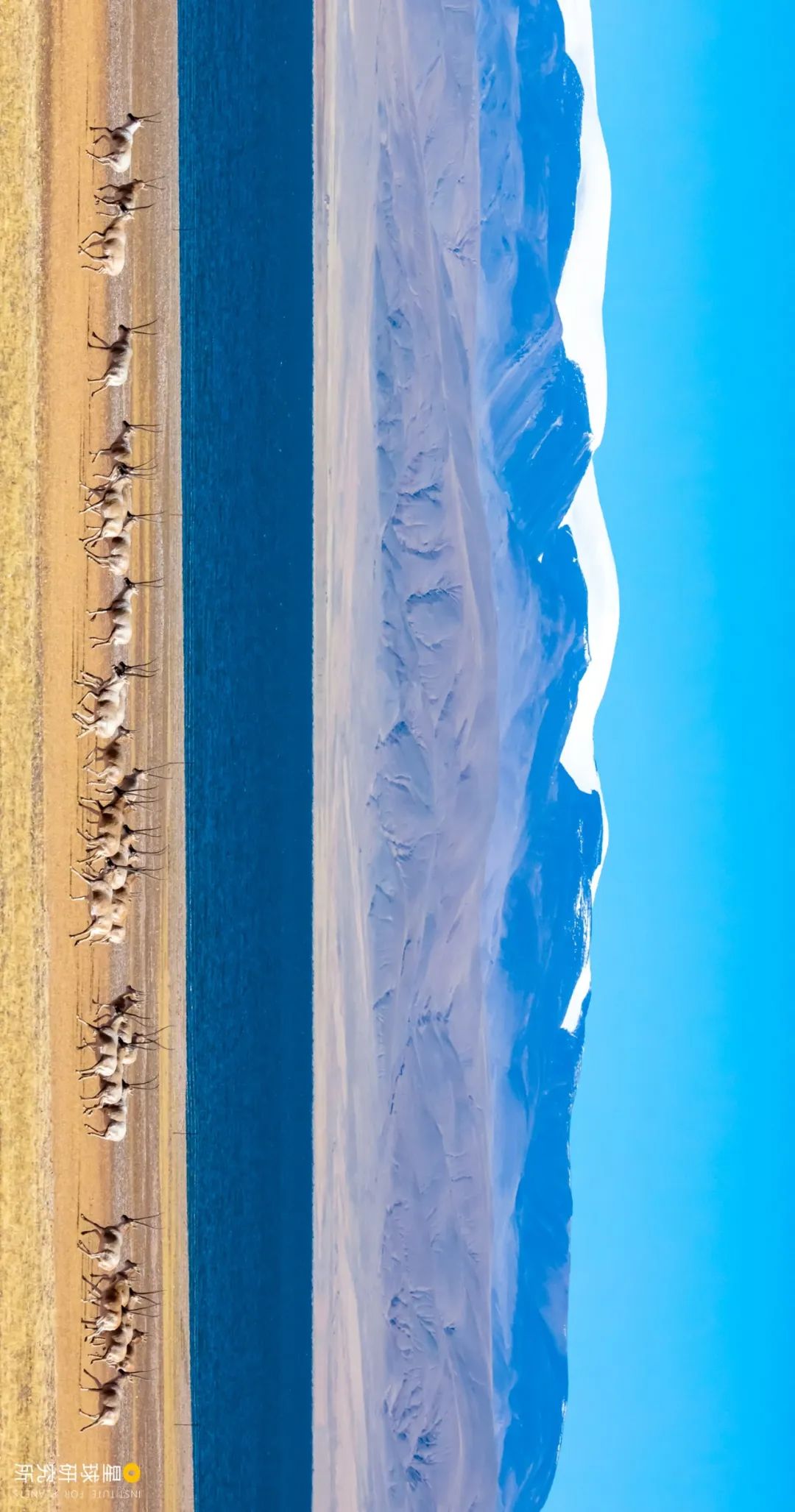
then
Dahu is here
Ten Tibetan Lakes
Here is the eight
With other scattered distributed large and small lakes
It looks like a delicate on the Qinghai -Tibet Plateau
Sapphire necklace
Three of the largest lakes
This is the necklace
Three sapphire main stone
Separate
2273.95 square kilometers of Tibet No. 1 Lake
Coloring
2024.55 square kilometers Tibet second largest lake
Namuwa
1014.51 square kilometers of the third largest lake in Tibet
Zharimankiwuwu
(The above -mentioned data from the "Research on the Comprehensive Geography of the Chinese Plateau Lakes" published by the Science Press in 2021. Due to the differences in statistics and methods, there are differences in the area data of different data. , Cross -Tibet Nagqu, Nima, Shenza, three counties, please watch it horizontally, photographer@,)
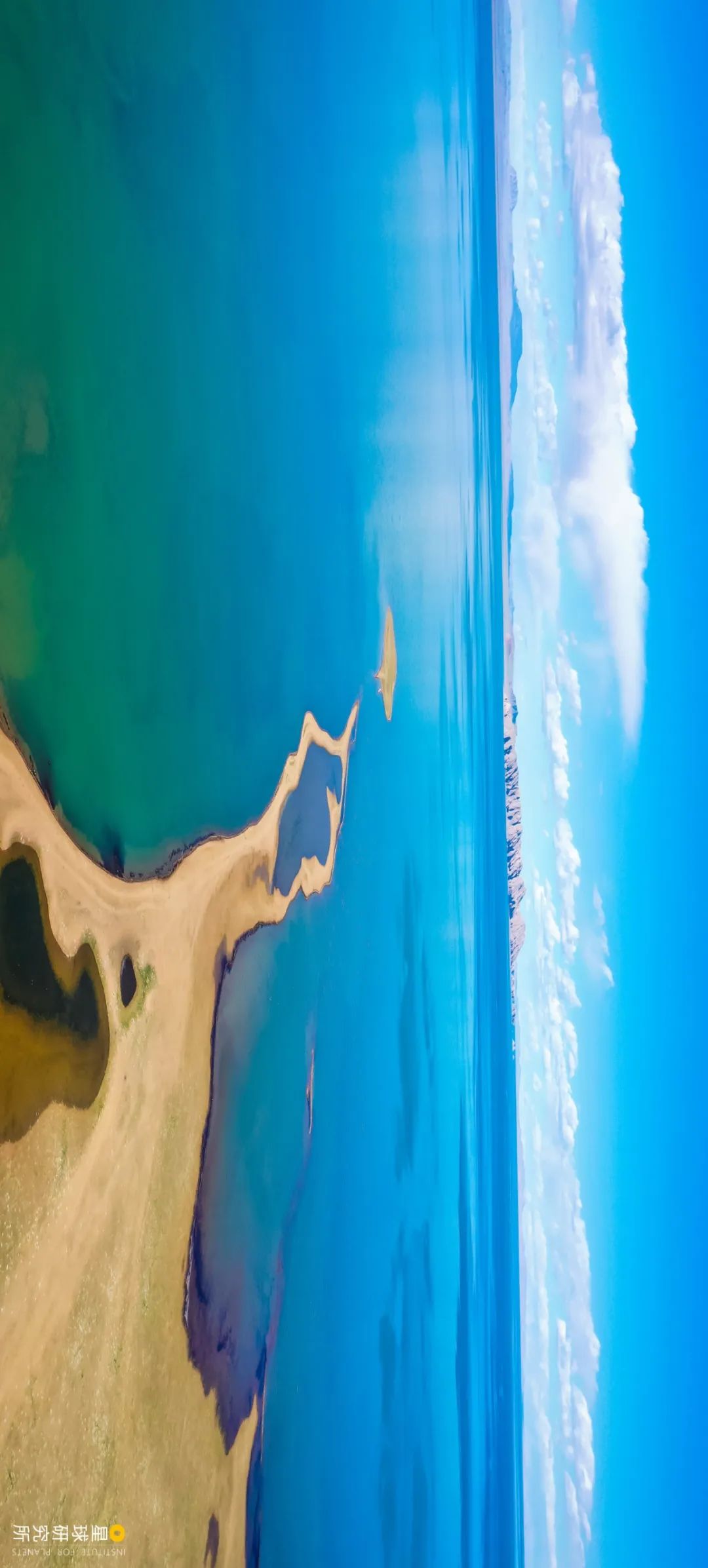
Three they
This is the belt, which is also the only in Tibet
Extra large lake
Other larger
Such as 、 错 错 错, Onla Renwa, Tashawo, etc.
Most of the area is greater than 100 square kilometers
But less than 1,000 square kilometers
Large, medium -sized lake
(Angra Ren is wrong, located in Shigatse, Tibet, photographer@Jiang Chenming)

Together with the other parts of the Qinghai -Tibet Plateau
Ban Gong, Yang Zhuo Yongwu, Eling Lake, etc.
More than 200 large, medium -sized lakes
65% of the area of the Qinghai -Tibet Plateau lake
It is for the Qinghai -Tibet Plateau
Blue main force
(Ban Gong is wrong, located at the junction of China and Indian control Kashmir. About 2/3 is located in our country. Photographer@Xiang Wenjun)
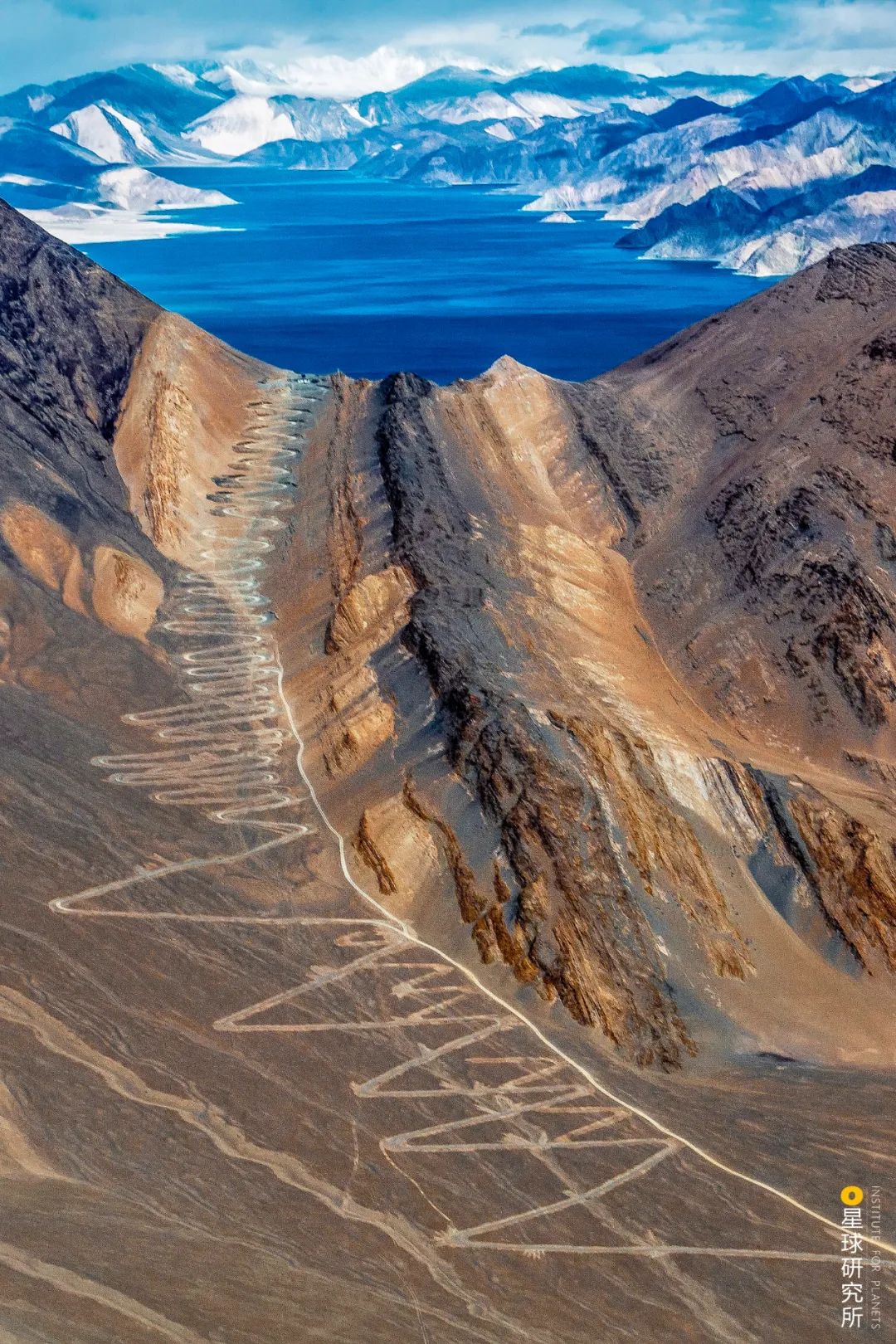
They are all in full
Give thousands of forms to the blue of the Qinghai -Tibet Plateau
But its shape is basically irregular to follow
(Please watch Hengping, there are many coral branches in Yangzhuo Lake in Shannan, Tibet, so it is also known as "the coral lake above" in Tibetan, photographer@()

but
In the reckless mountains of the Qinghai -Tibet Plateau
Thousands of Lakes
There is something different
Such as in Hengduan Mountains
Lisuohai, not far from Gongga Mountain
And Daocheng Aden in multiple holy lakes
They all show pearl -like rounding
(Please watch horizontal screen, Lisuohai, not far away is Gongga Mountain, photographer@(()
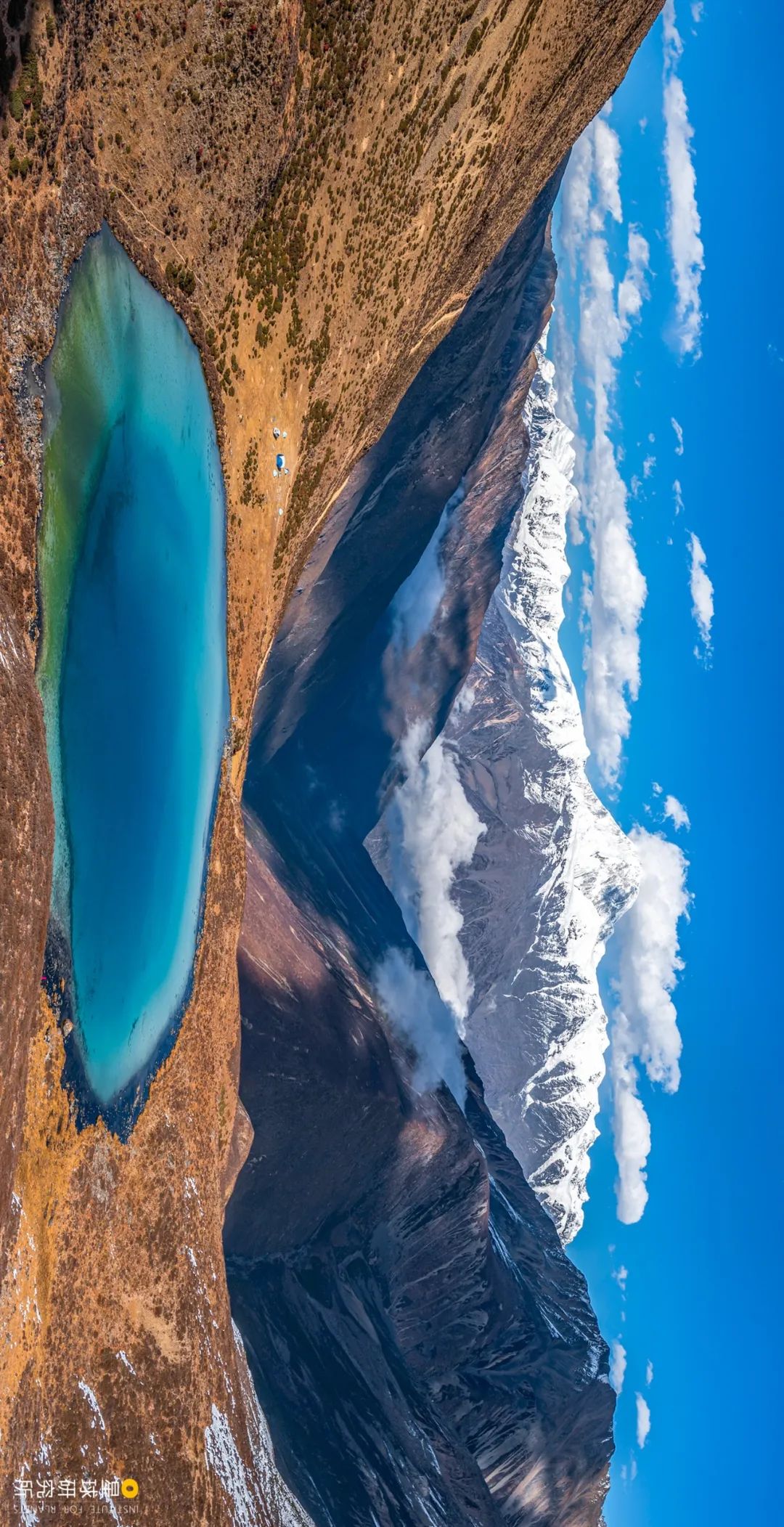
On the mountains in the north of the Northern Sichuan Plateau
Degmu wrong in the year of the year
And some lakes of Lotus Baoye
Application of ellipse form
(Lotus Baoye is wrong, photographer@()

The lake basins of these lakes are created by glaciers
Therefore, it is collectively referred to as
Glacier lake
Glacier range of the Qinghai -Tibet Plateau
It used to be wider than now
Such as about 20,000 years ago
The glacial area of the Qinghai -Tibet Plateau is about 7.5 times today
(Compared with the current glacier scope of the Qinghai -Tibet Plateau, the scope of the glacier, drawing@((/Planet Research Institute)
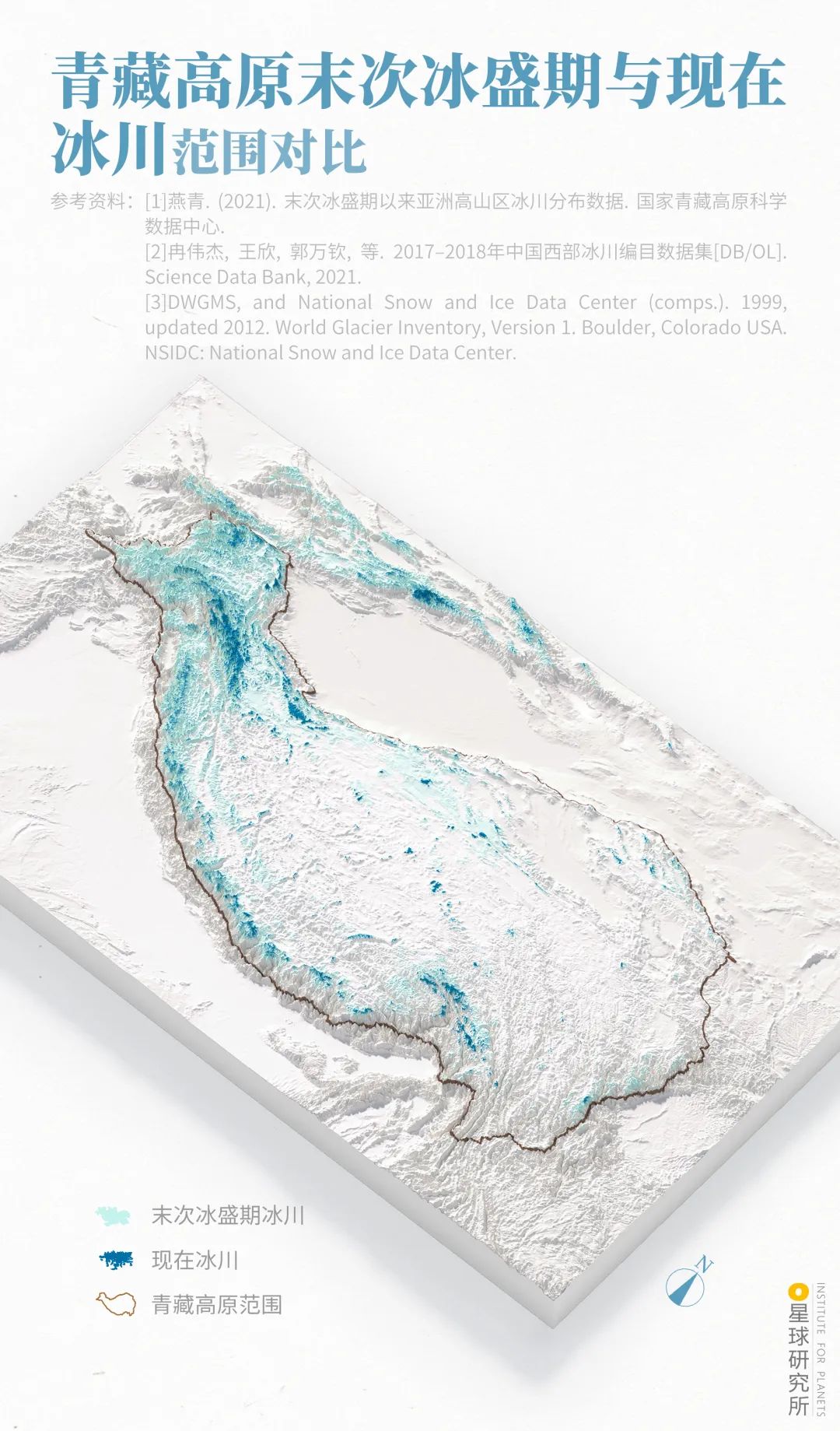
The flowing glacier erodes the mountain
Leave all kinds of depression on its surface
When the ice period is over, the climate is warm
Glacier's large area atrophy and retreat
These depressions are available
And after the water accumulates various types of glacier lakes
On the mountains
Glacier accumulates and erodes surrounding rocks
Most of the round, semi -circular ice bucket
After the water storage, the lake is also round and semi -circular
For Bingdou Lake
In the valley
Glacier keeps flowing downward
Eclipse along the valley that is mostly long -strip -shaped depressions
Most of the lakes are oval after water storage
It is for ice erosion lake
(Main type of Glacier Lake formation, drawing@(/Planet Research Institute)

Glacier erosion mountains
It will also allow a large amount of debris to flow with the glacier
And gathered on both sides of the glacier and the end of a natural dam
After the glacier retreats
Flowing water is intercepted here
Water storage into ice ì [qì] Lake
(碛, meaning sandstone)
Its shape is short and changing
When the lake is young
Such as a short Tibetan Shannan Gun Yong Glacier
Fascinating
It looks like a warm jade card
(Tibetan Nanlang Kazi County Karuxing Peak Gallery Glacier and Gun Yongwu, Photographer @Greatwj)
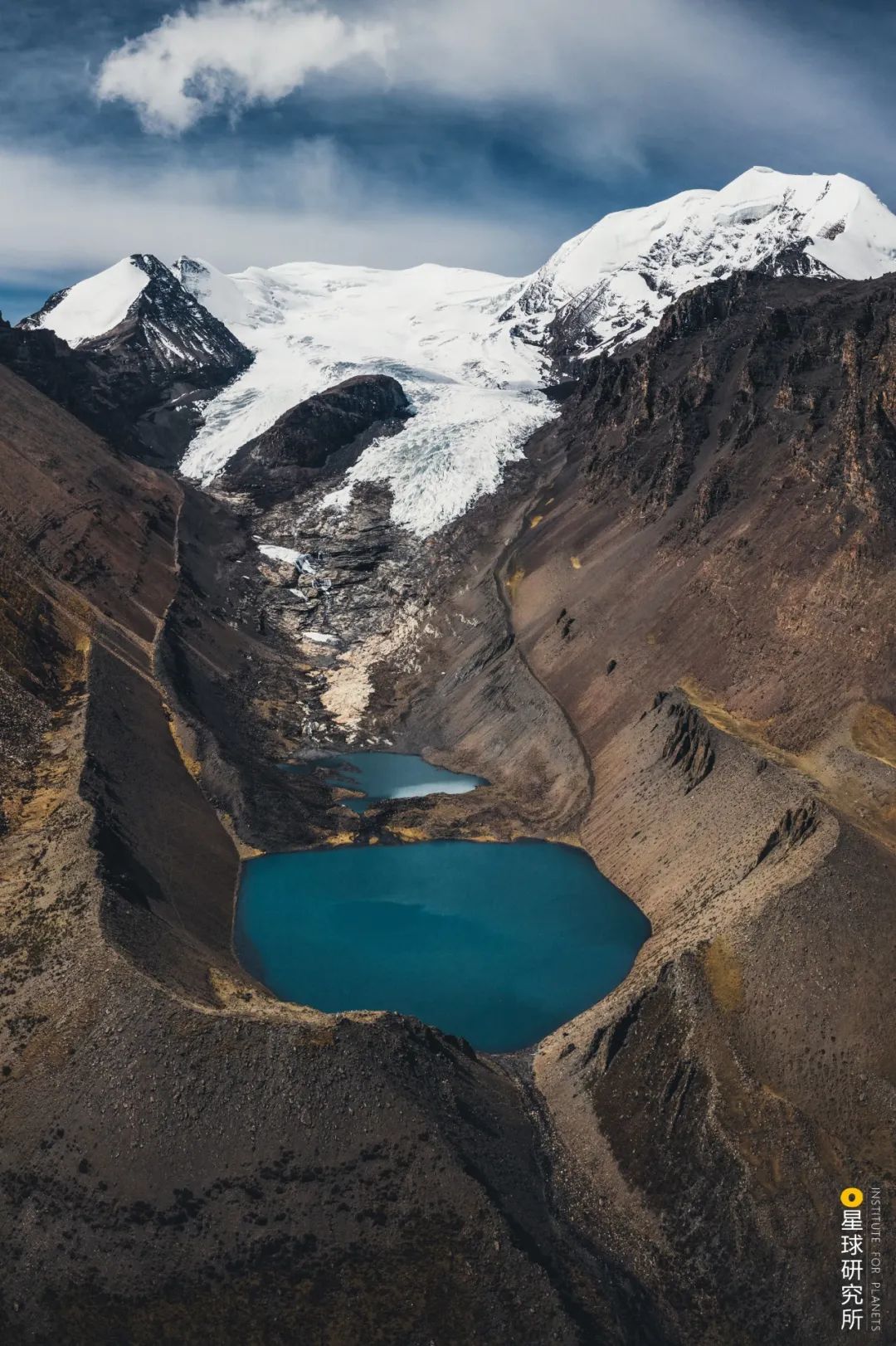
Lake for a long time
The slender is like the Tibetan Linzhi Glacier U -shaped Valley
Baton
It looks like a section of wide river
(Batong Wrong, Located in Linzhi, Tibet, photographer@()
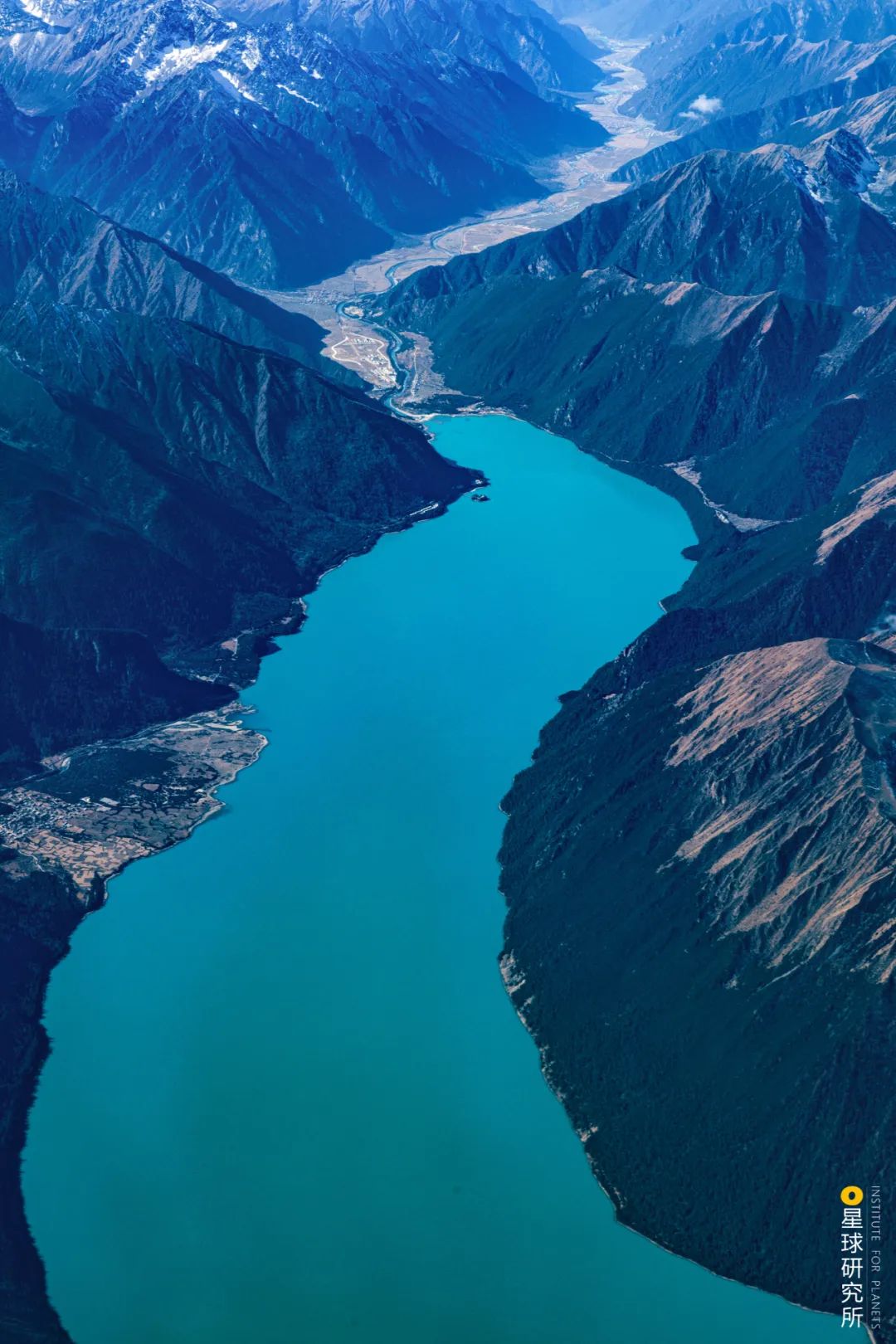
Due to the water blocking effect of the rear natural dam
Bingli Lake is also known as the Binglu Modern Lake
But natural dams of similar effects
It is not only a glacier to create
Sudden landslides, mudslides, etc.
Let the mudslides stand in the valley
The upstream can accumulate water
It can also form a dammed lake (the cause of some dammed lakes in the Qinghai -Tibet Plateau, drawing@同/Planet Research Institute)
They often due to the wildness of sediment gravel

It is shaped into a variety of interesting shapes
Such as the Wuhua Sea of Jiuzhaigou, Sichuan
The shape is like a tadpole
(Sichuan Jiuzhaigou Wuhua Sea, shaped like a tadpole, photographer@()
Until this
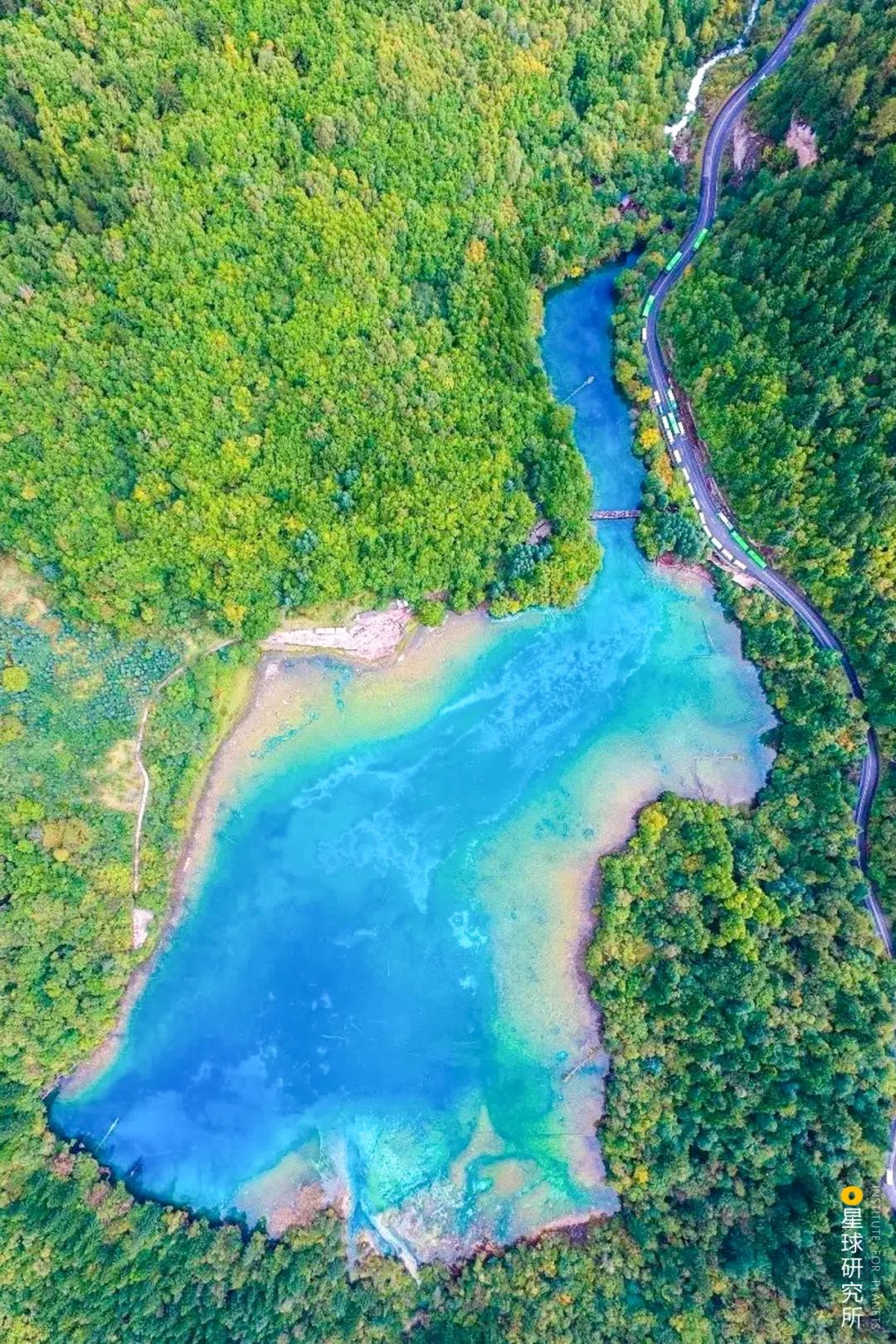
Blue manufacturing motivation is full
Blue
Disposal on the Qinghai -Tibet Plateau
But unfortunately
Over time
Blue is not eternal
Change follow
03
Blue | No eternal
first
Lake
It is possible to change due to seasonal changes
In the season with sparse rainfall or severe climate
Ranwu Lake Lake
Can be pure blue
(Please watch it horizontally, but Wuhu, located in Changdu, Tibet, photographer@()
But when the rainy season comes
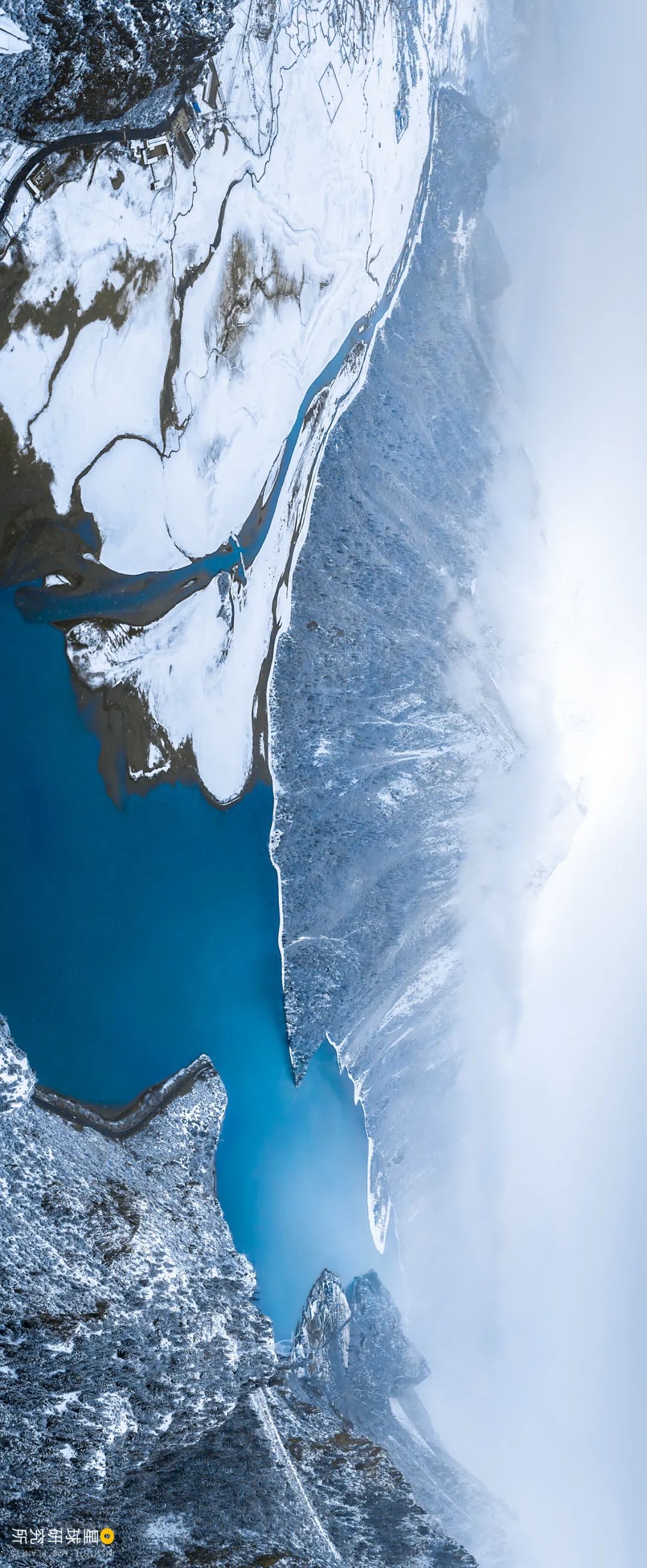
Rich sand, rock pieces and other debris
Bring flowing water into the lake
The lake often becomes yellow
But occasionally the debris content is just right
However, Wuhu can also appear
Green -like color
(Please watch it horizontally, but Wuhu, located in Changdu, Tibet, photographer@()
also
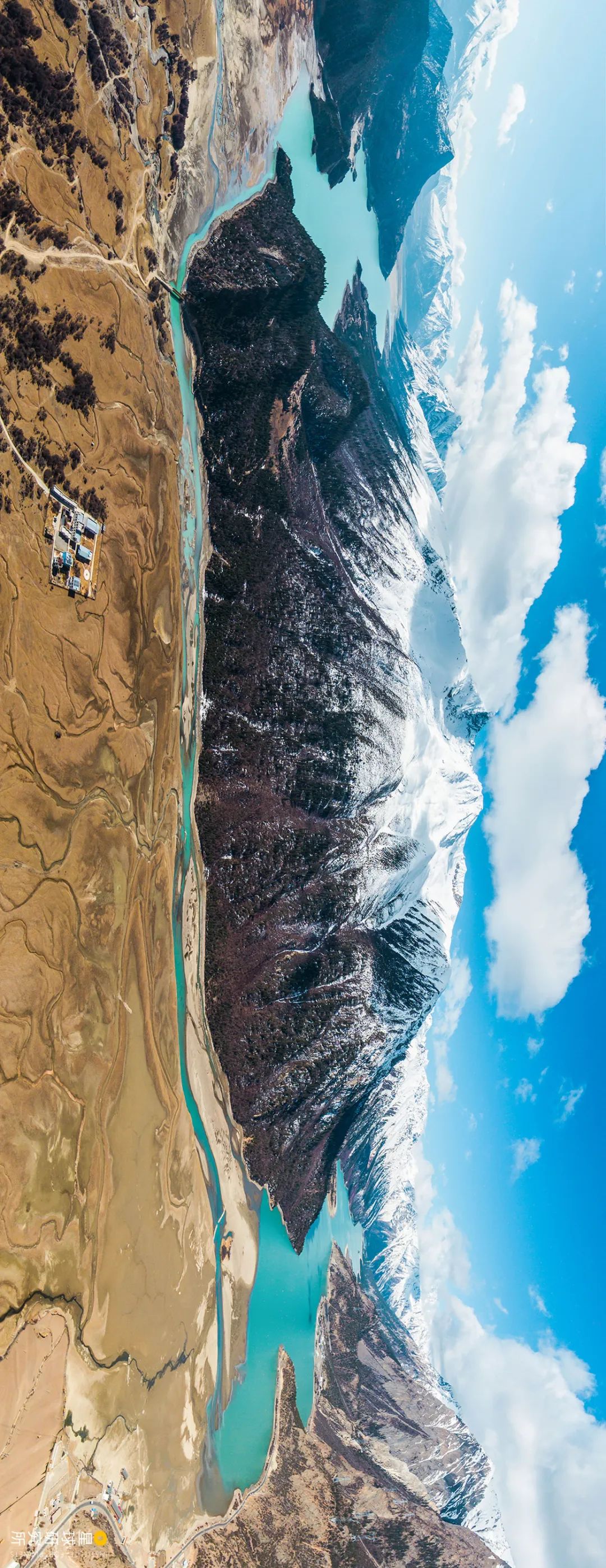
In the severe winter
Some lake surfaces are frozen due to low temperature
This is changed to a new white outfit
Sometimes artistic conception
Still hug the pipa half -cover face
(Tibetan Nanlang Kazi County Karuxing Peak Gallery Glacier and Gun Yongwu, Photographer@(()
Sometimes it is integrated with the surrounding ice and snow

Difficult to divide each other
(The Glacier Lake of the Diqing Yujie Village, Yunnan, the lake is called "Ice Lake", photographer@Zou Tong)
Sometimes the thick ice layer
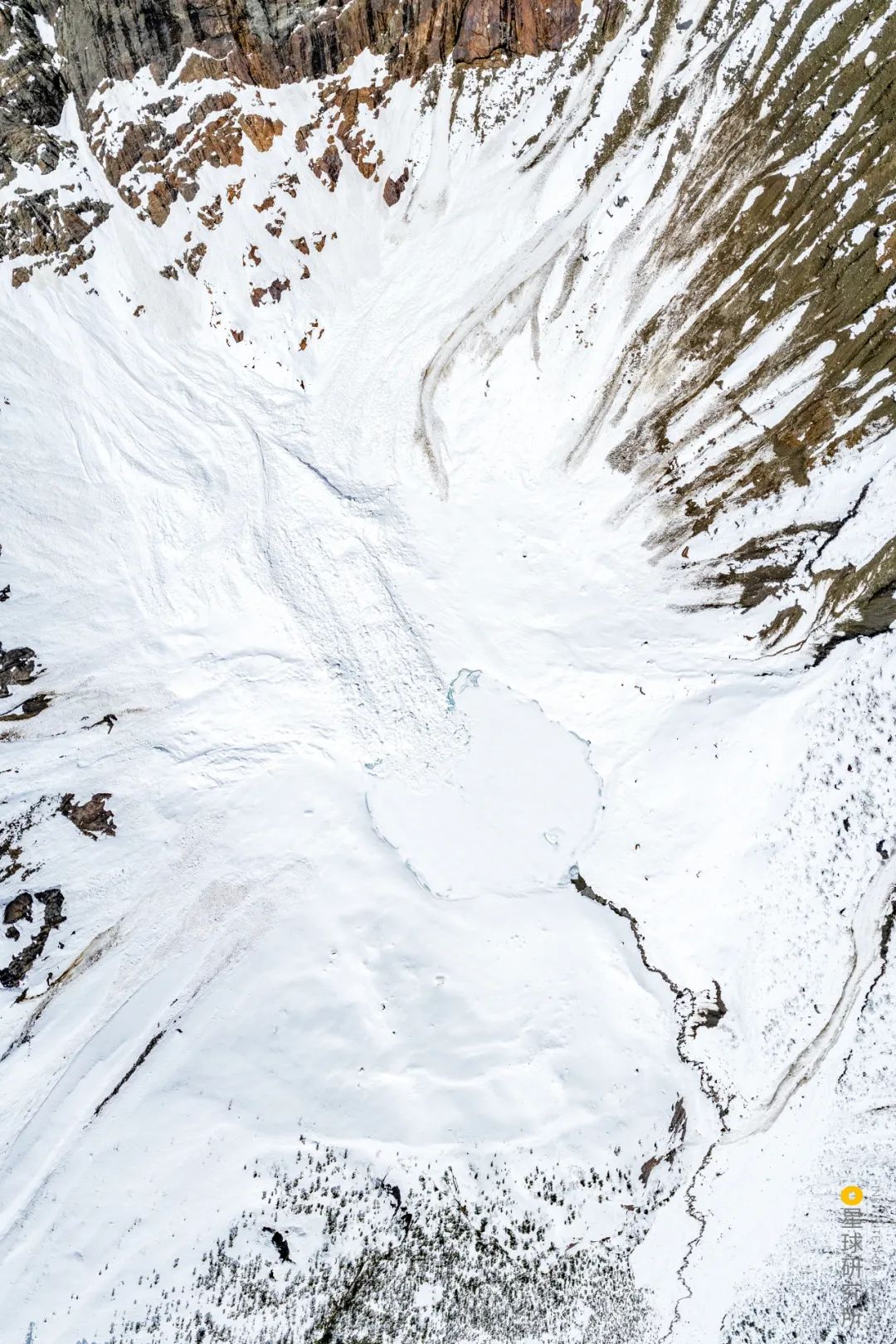
Can easily carry the flock of rushing on the road
(Phamong and the herd, located in Shannan, Tibet, photographer@()
But these changes are just temporary
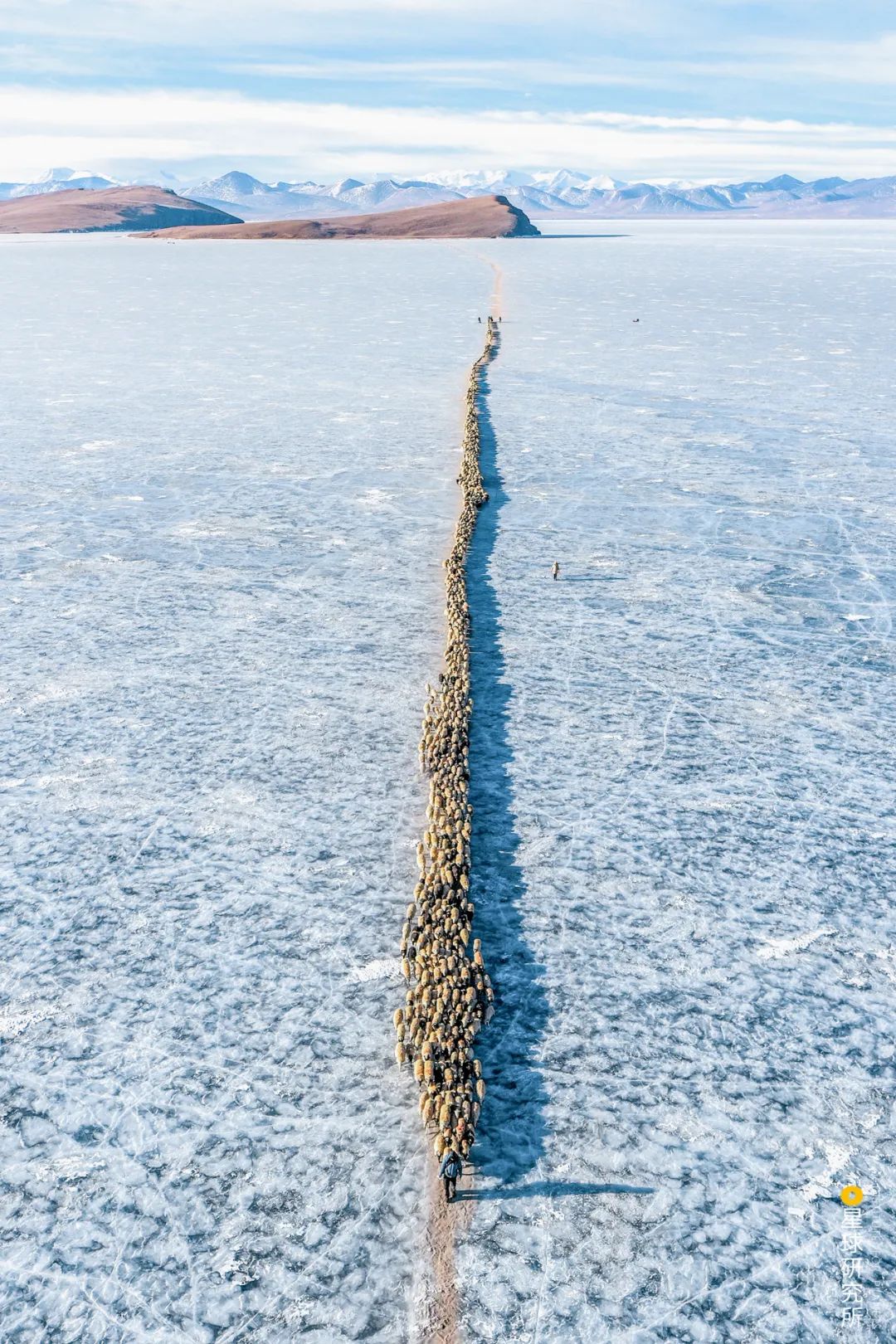
Accumulation of salt substances
It will change the blue for a long time
If calcium ions are easy to combine with carbon dioxide
Calcium
Even in the freshwater lake with a low ion concentration
You can also spread a layer of white carpet for the bottom of the lake
The color of the lake becomes lighter
(Huanglong Calcium Huali, located in Aba, Sichuan, photographer@()
Most salts want to achieve similar effects
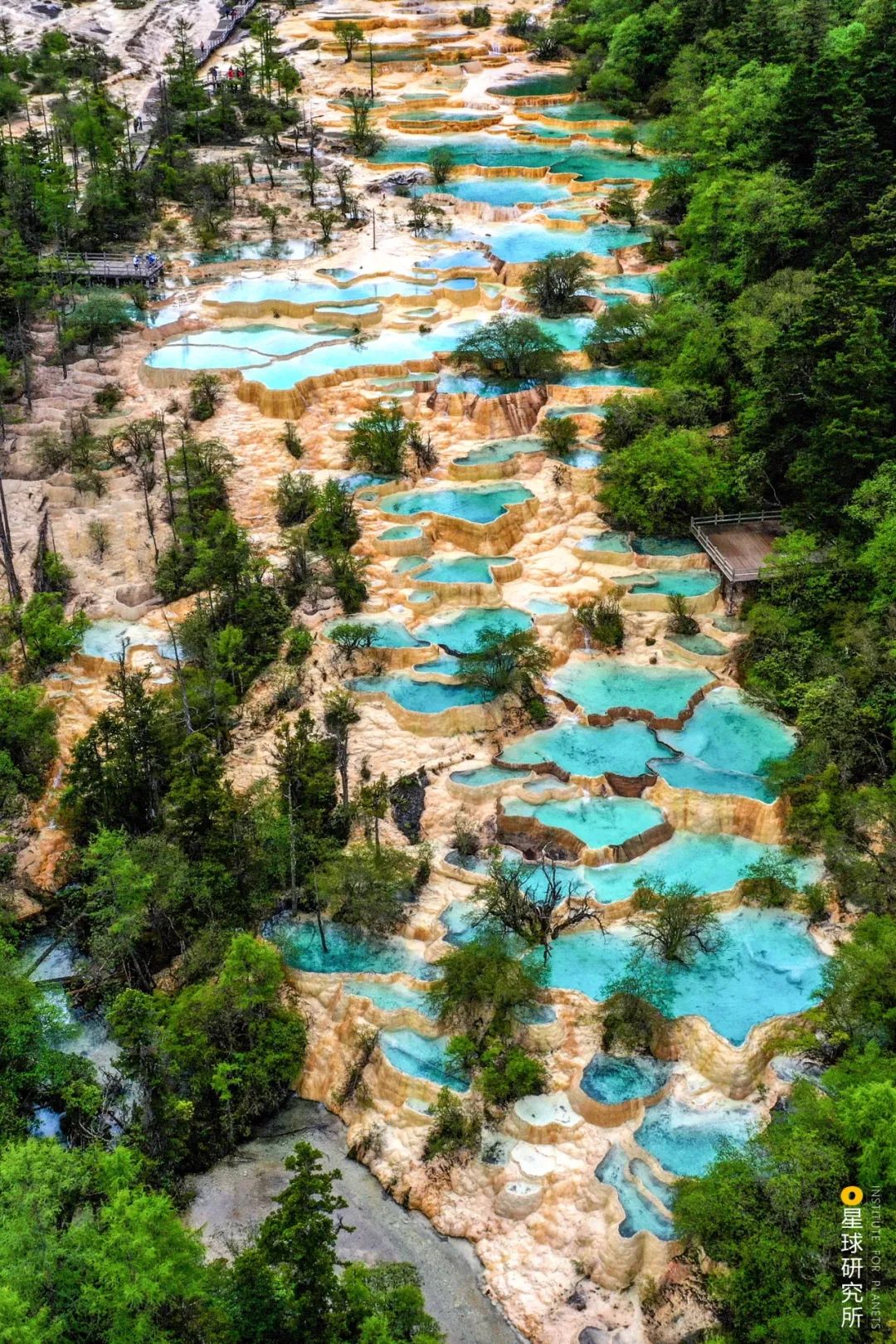
It requires a higher concentration
Most lakes in the hinterland of the Qinghai -Tibet Plateau
They are relatively closed inner flow lakes
The salt substances flowing into the lake cannot be excluded from the abolition
After accumulation for a long time
The saltiness of the lake is getting higher and higher
Gradually become salt lake
Salt material is precipitated due to saturation
The bottom of the lake becomes white
(Lake Joner, Dongtai, located in Haixi, Qinghai, photographer@(()
It can even grow in various forms
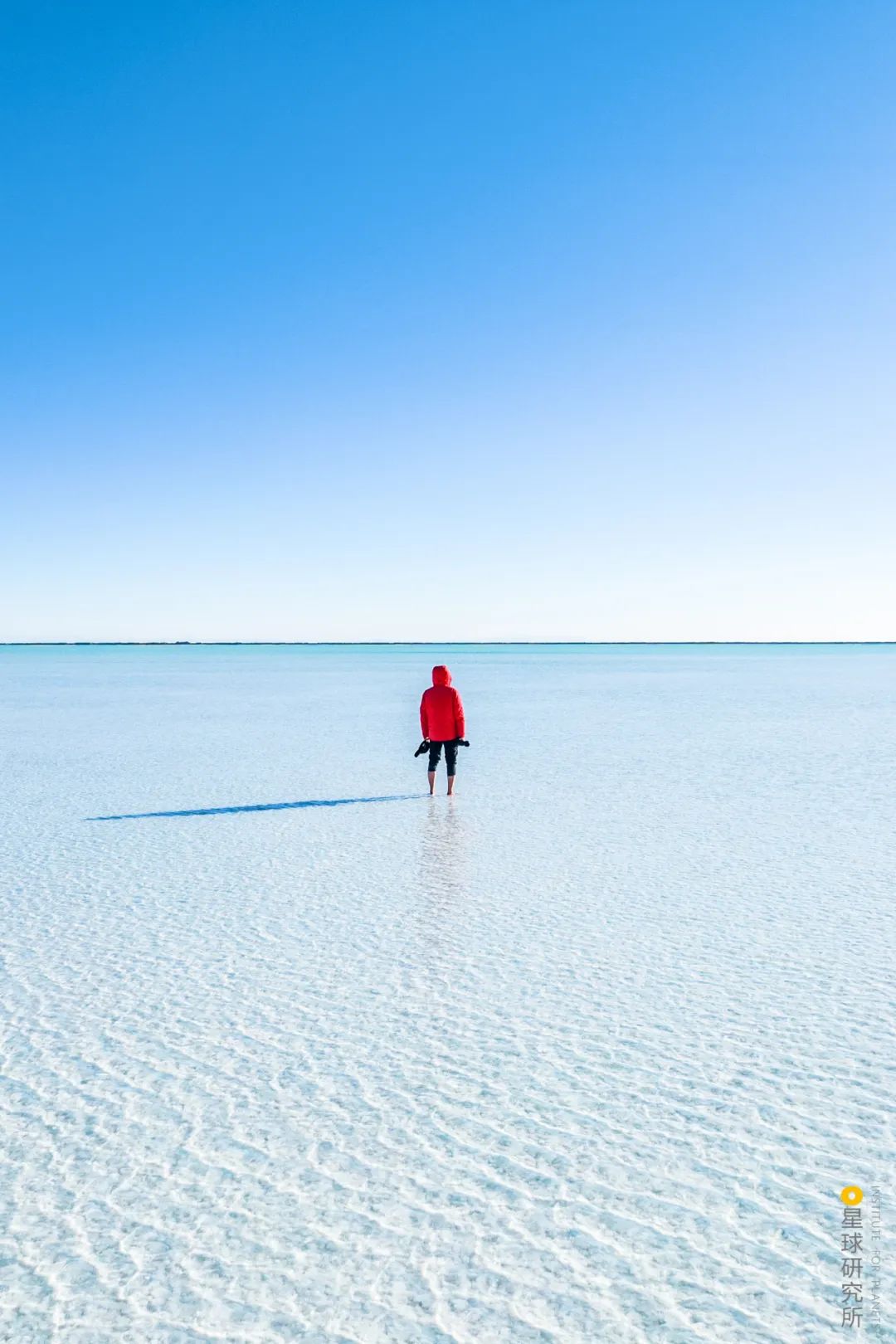
White salt
Add a different style to the lake
(The salt flower in Chalhan Salt Lake is located in Haixi, Qinghai, photographer@()
The changes brought by salt substances are not stopped here

The higher concentration of iron ions, copper ions, etc. in the lake water
It will also change the color of the lake water
And if there are a lot of salt -adding microorganisms in the lake
It is rich in β-carotene, shrimp and other substances rich in its body
It makes its body color bright
The lake will also be dyed with more gorgeous colors
Under the role of the two complements
The lake color will change greatly
(Char Khan Salt Lake, located in Haixi, Qinghai, photographer@(()
Like blood red
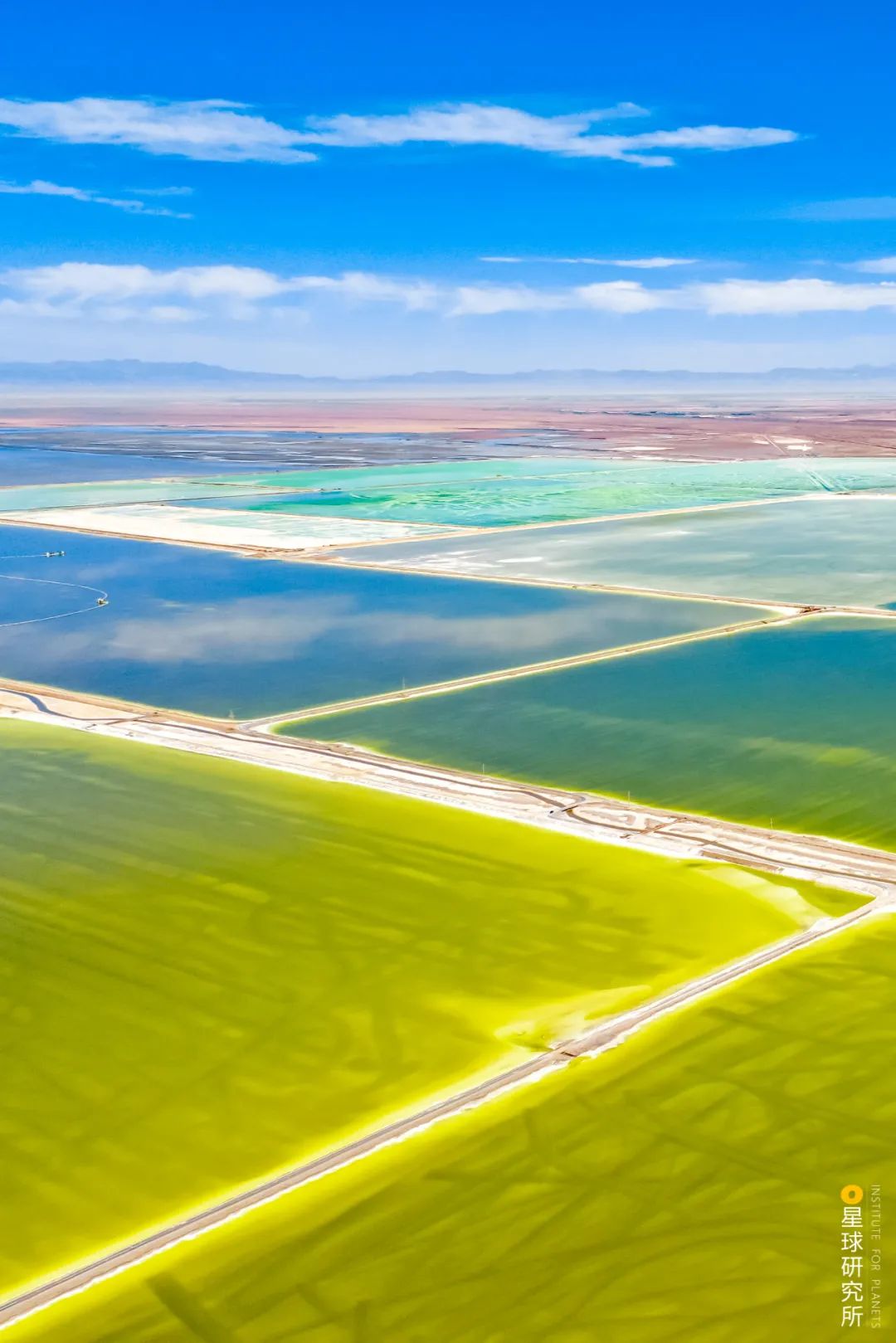
(Please watch it horizontally, Zabeya Tea Card, located in Shigatse, Tibet, photographer@(()
Honey -like yellow

(Russian Buliang Sulfur Lake, located in Haixi, Qinghai, photographer@(()
Emerald -like green
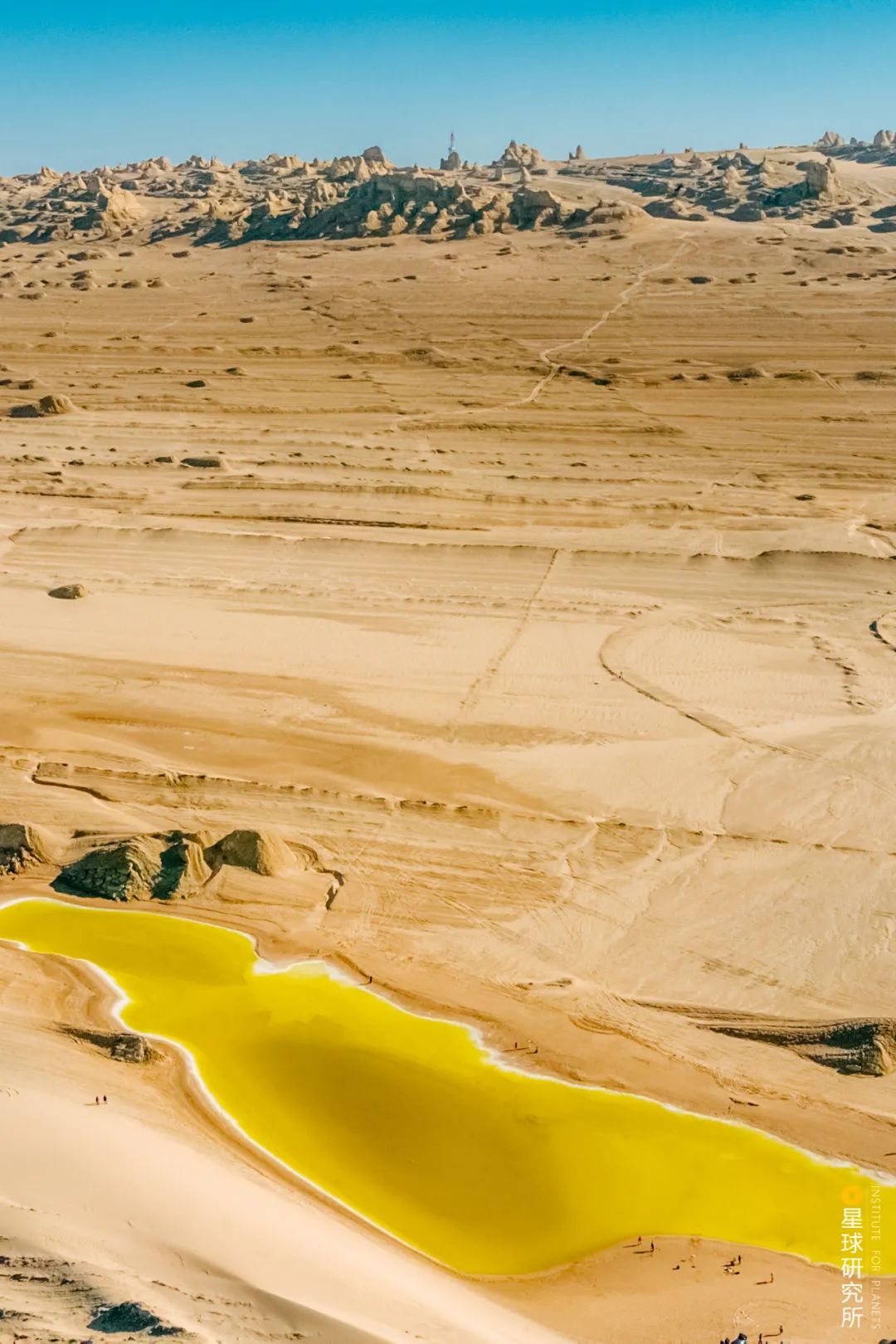
(Dashaidan Emerald Lake, located in Qinghai Haixi Dichai Dan Administrative Region, photographer@(()
When the salt lake is dried up due to drought

There is only a thin layer of thick saline left
The lake surface is therefore not shocked
Like a mirror of the ground
Far snow mountains, gorgeous glory, brilliant stars
Both have become its color
(Vanada Emerald Lake, located in Qianya City, Haixi, Qinghai, photographer@(小 ()
If the salt lake is dry further
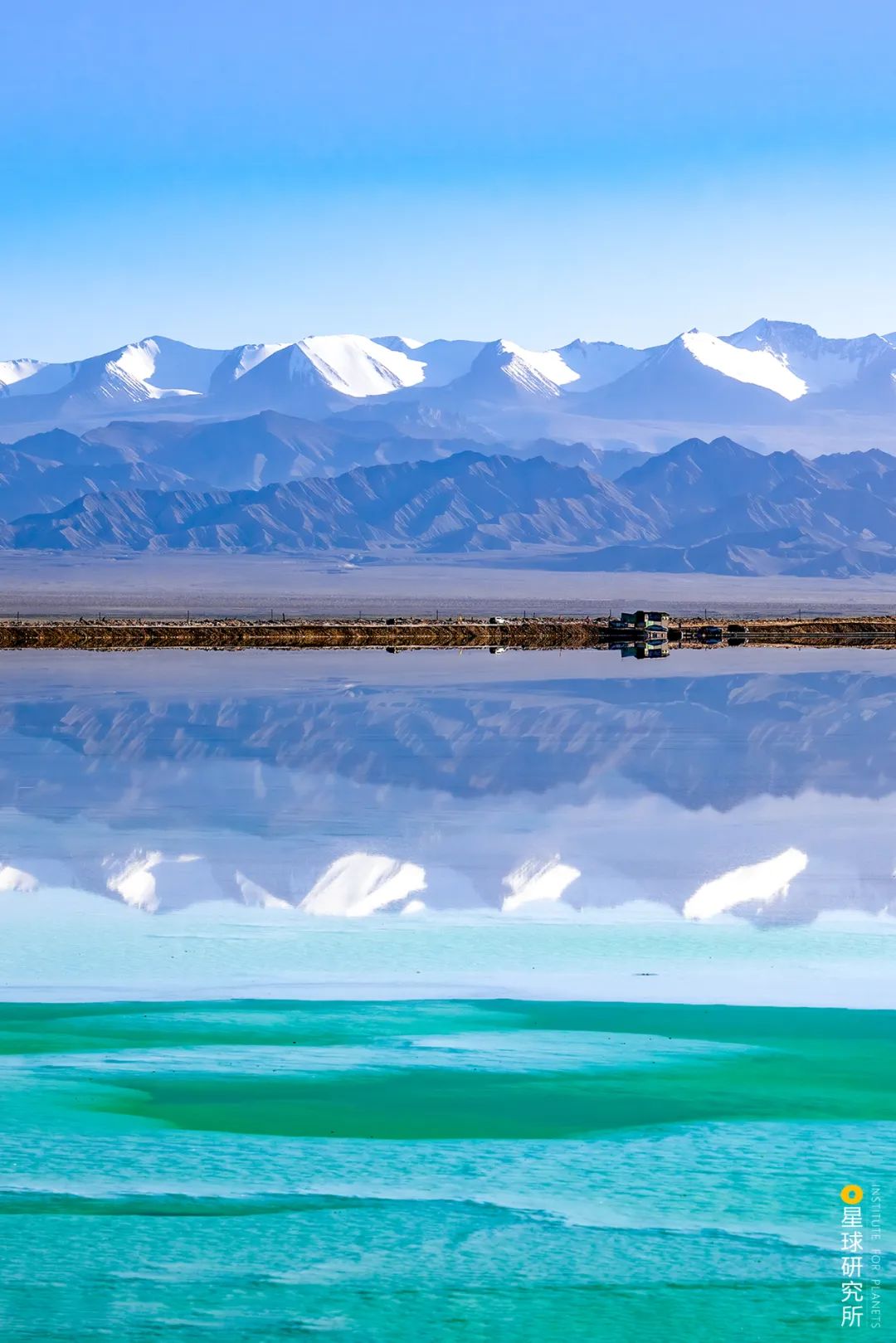
The dry snow -white salt shell is left
The lake is hidden in the gap in the salt layer
Only occasionally emerge when it is supplemented by water such as rainfall and snow melting
For dry salt lake
And this is the end of these lakes
(Zabeya Tea Card, located in Shigatse, Tibet, photographer@Lu Yuchun)
When dry up, further further

Their life is ushered in the end
The blue period of the Dahu period
The gorgeous gorgeousness of the salt lake period
Even the whiteness of the dry salt lake
It will be buried in the sun and the dust of the wind and the dust.
No longer exist
(Qinghai Dichai Dan Devil City has a lake that is about to dry up, photographer@()
From this perspective
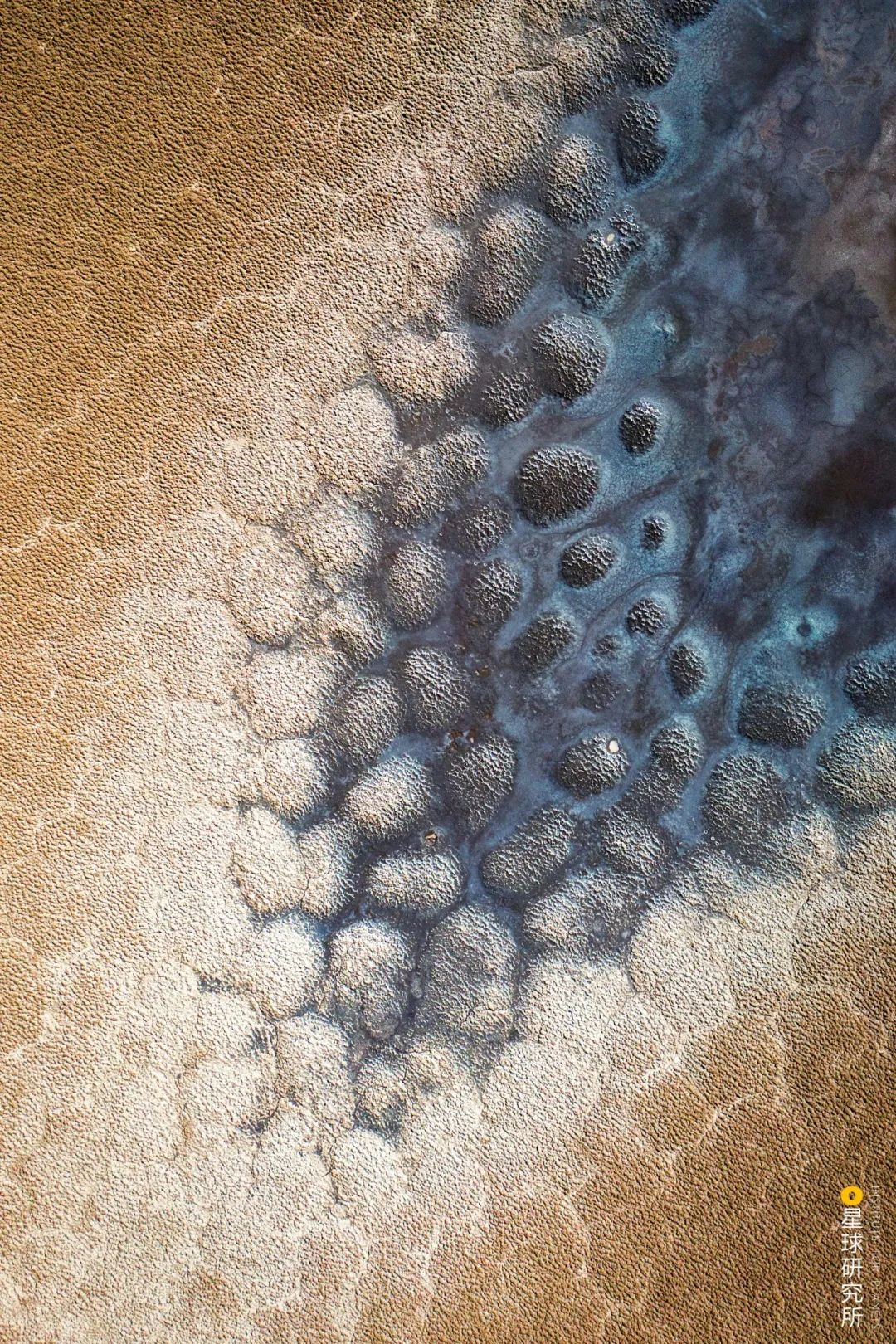
In the overall drought climate environment of the Qinghai -Tibet Plateau
Drying seems to be most of the lake here
Final fate
future
Big blue on the Qinghai -Tibet Plateau
Will it really disappear like this?
Looking back on their changes in recent decades
We may be able to find some answers
04
Blue | Future
Since the end of the 20th century
The process of global warming began to accelerate
This profound impact
Many lakes on the Qinghai -Tibet Plateau
Rise of temperature
Make many years of frozen soil melting
The surface collapsed, the stagnant water became a lake
It is for the Her Ronghu Pond
They often appear
Depending on the night empty starry
(Please watch Hengping, Hunuma Group in Tianjun County, Haixi, Qinghai, photographer@(()
In 2018
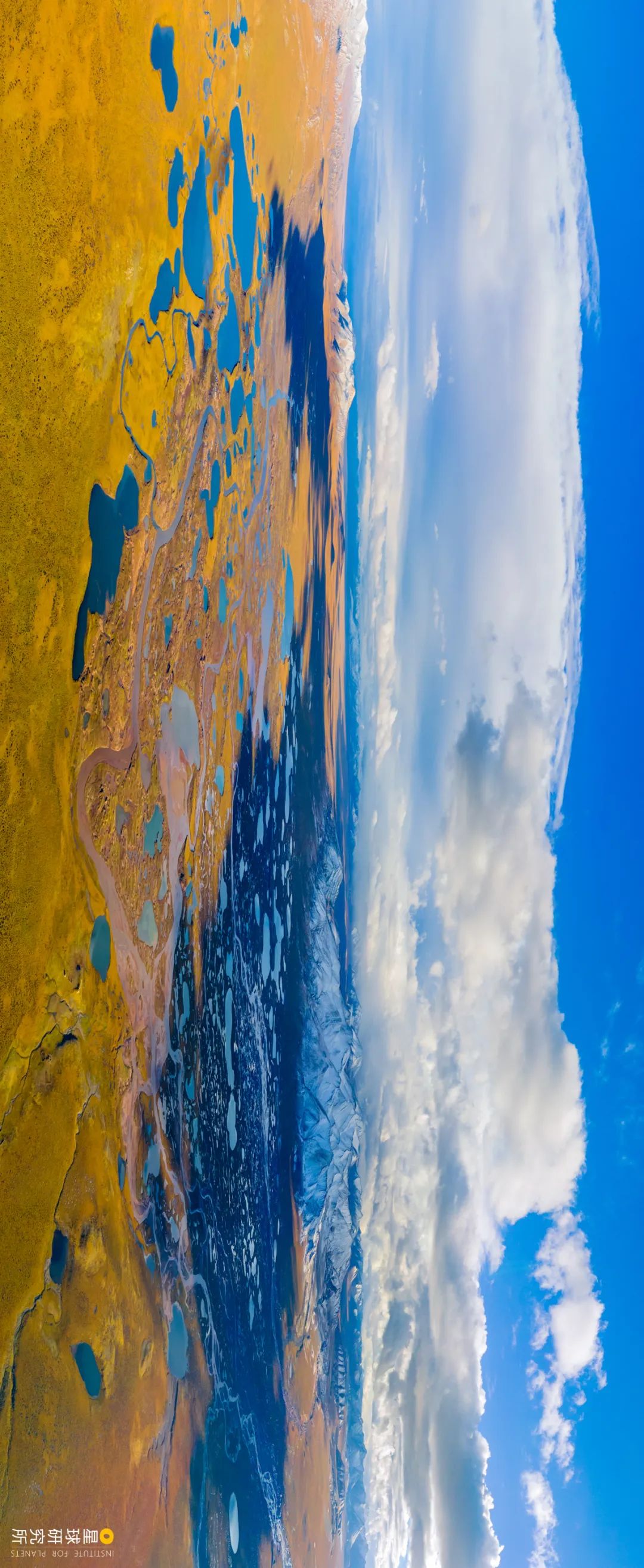
Number of Hot Ronghu Ponds on the Qinghai -Tibet Plateau
It has reached amazing
120000
And by 2020, this number has risen
160,000
In just two years
It rose by more than 30%
The growth rate can be described as extremely rapid
(Distribution of the frozen soil of the Qinghai -Tibet Plateau and the hot Ronghu Pond, drawing@((/Planet Research Institute)
Rise of temperature
It has also become an important induction factor for abnormal climate
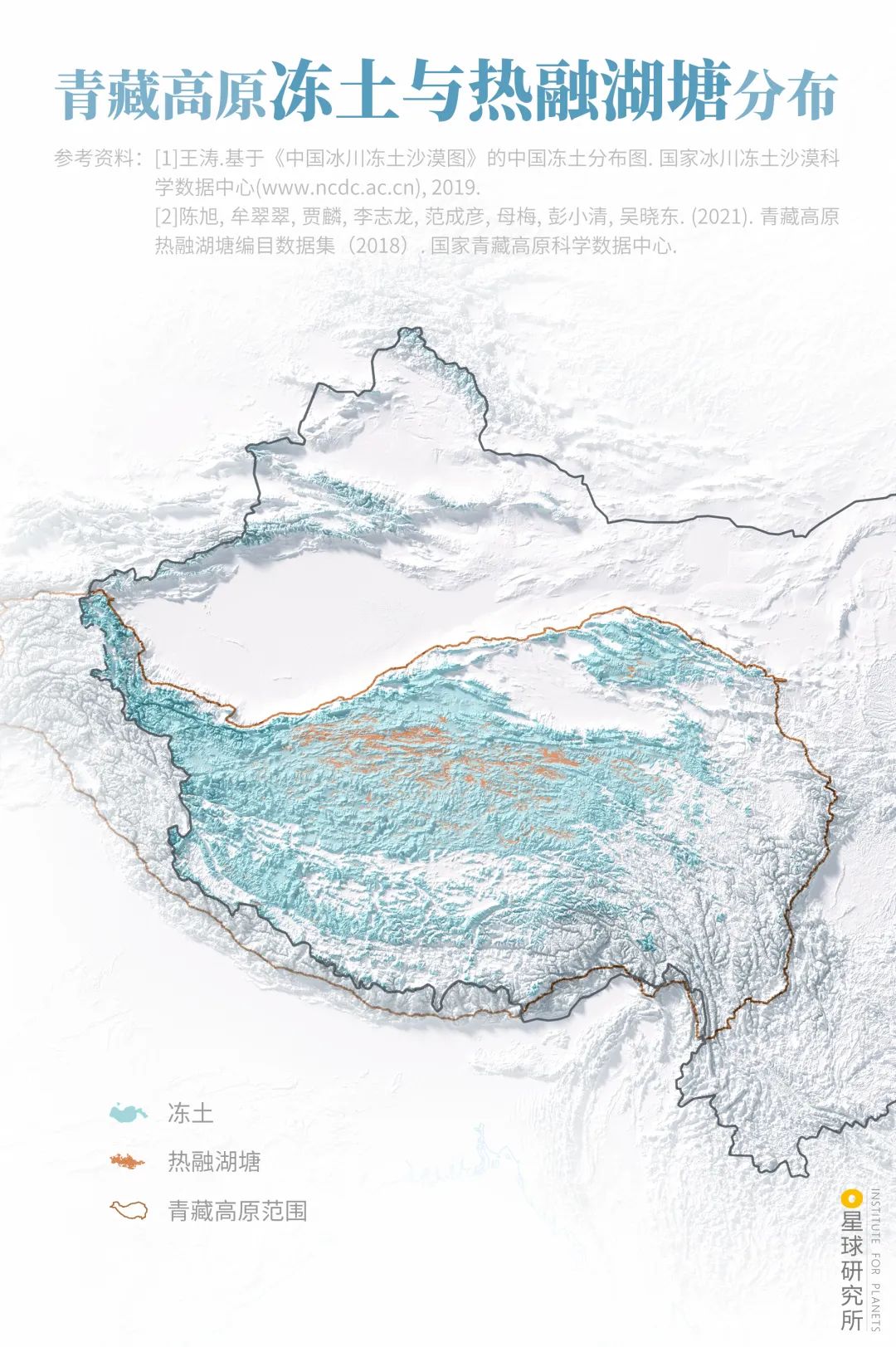
The increase in rainfall in most areas of the Qinghai -Tibet Plateau increases
In addition, the increase in glaciers is also increased
Many lakes start to grow bigger
Ruye Linwa
From 1622 square kilometers in 1975
By 2020 2428 square kilometers
During 45 years, area increased by nearly 50%
Even in this process, surpass Nami
Leap to become the largest lake in Tibet
(Severe changes in the scope of the wrong range, drawing@((/Planet Research Institute)
Na Mu wrong by being overtaken
Although the growth rate is not so exaggerated
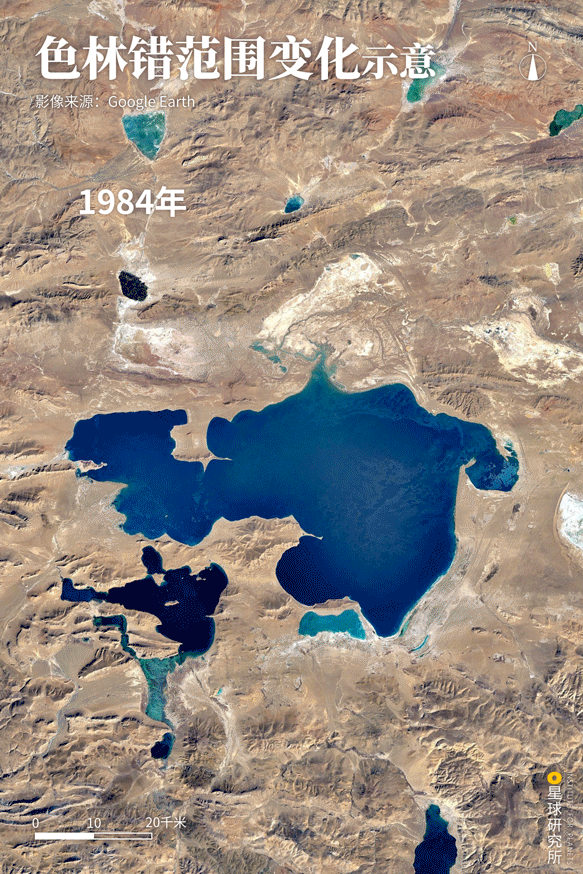
But in the last 20 years
Added about 50 square kilometers
Equivalent to the area of a Lake Kanas, Xinjiang
(Please watch horizontal screen, Nami Wrong, photographer@(()
future
If the growth trend of the lake is still
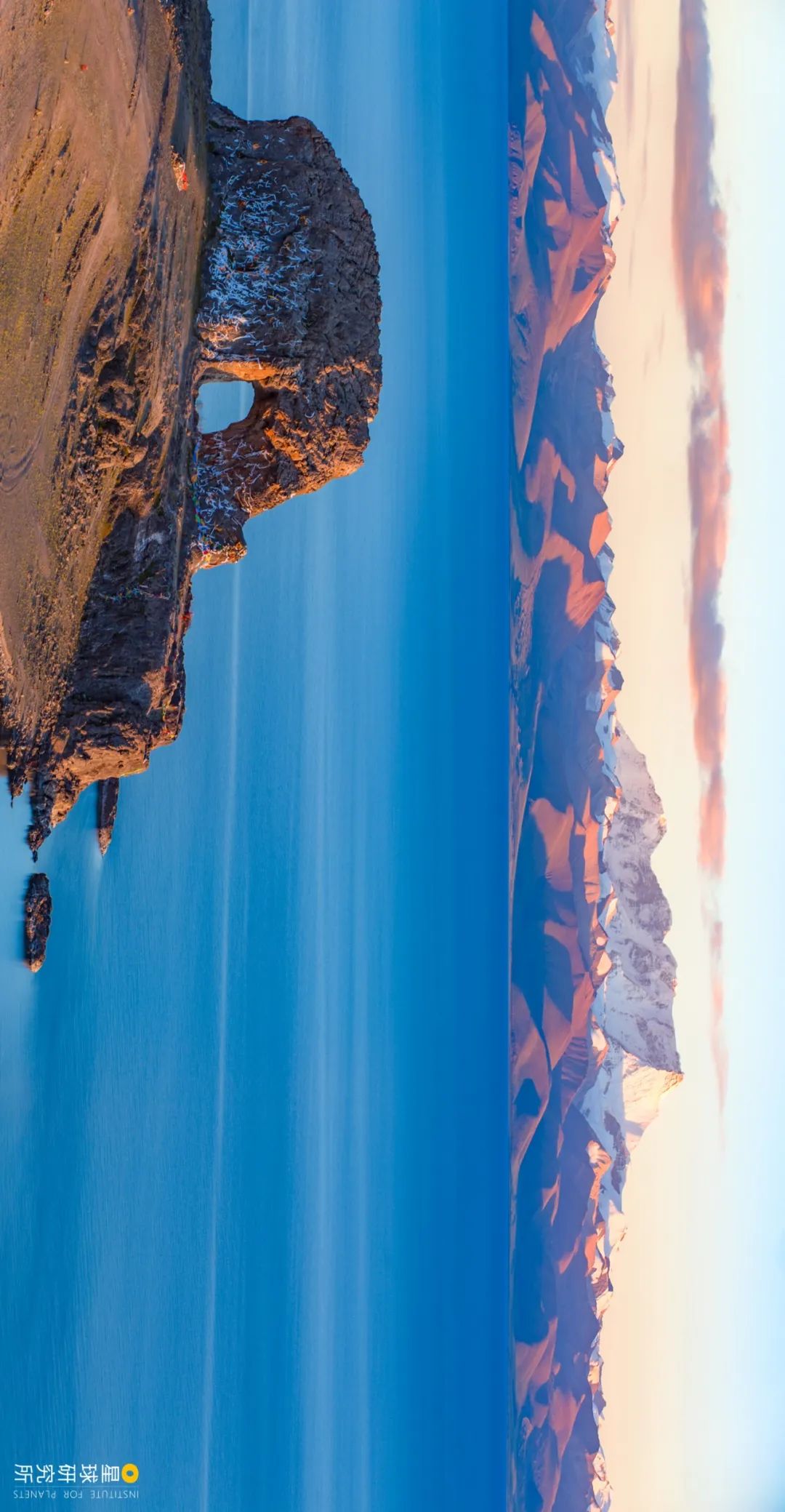
Many lakeside roads will be flooded
Many surrounding small lakes will be swallowed by the big lake
(The road next to Selin, photographer@(()
Increase in lake water volume
It will also reduce the salinity of the lake

The salt shell of the salt lake will be dissolved
Among them, salt -loving microorganisms will leave
Gorgeous colors will also disappear
The blue of some lakes may return again
(Qinghai Haixi Vyaka Emerald Lake, photographer@(()
This can be seen
The blue of the Qinghai -Tibet Plateau seems to be increasing

But is this really the case?
global warming
In fact, it has also accelerated the disappearance of some lakes
Rise temperature and increase rainfall
It will lead to the increase in glaciers flowing faster
And glaciers are more likely to break
Let the front end of the iced tongue slide into the Bingli Lake
Coupled with the increase in rainfall, the amount of water entry is increased
Many Ice Lake may be in the embankment because of this
Disappear
(Leadman in the northern part of Gongga Mountain in Sichuan and Bingli Lake in the glacier and Bingli Lake below it, photographer@(()
Other dammed lakes formed by landslides and mudslides
It is often due to the increase in the amount of water entering the lake
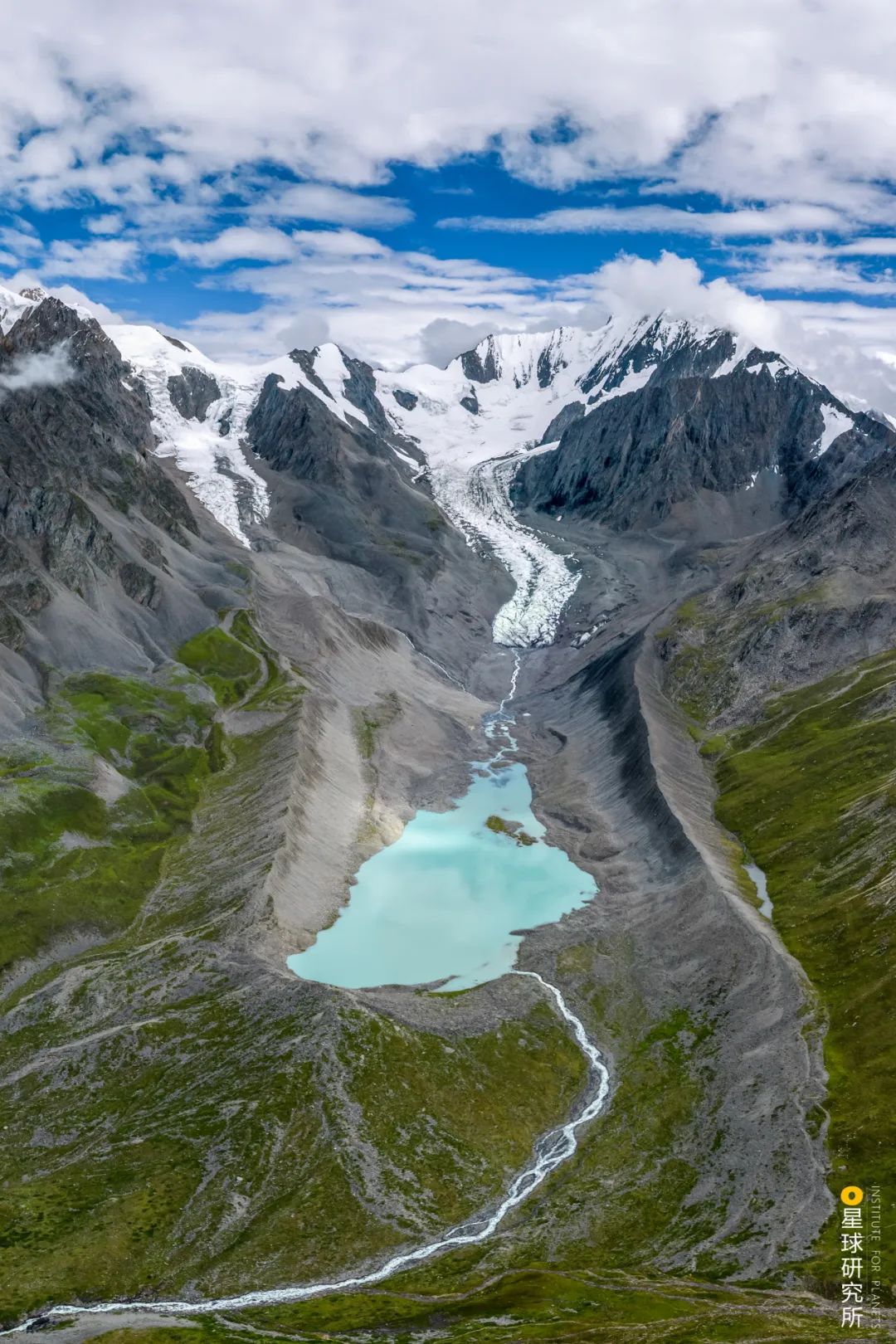
Improving the risk of disappearing dike
(In June 2000, Yigong's mistakes in Nyingchi, Tibet, had a dyke due to the skyrocketing water in the rainy season. After that, the Yigong Mistake Bed was revealed. )
And the climate abnormality caused by global warming
It has also led to a decrease in rainfall in some areas of the Qinghai -Tibet Plateau
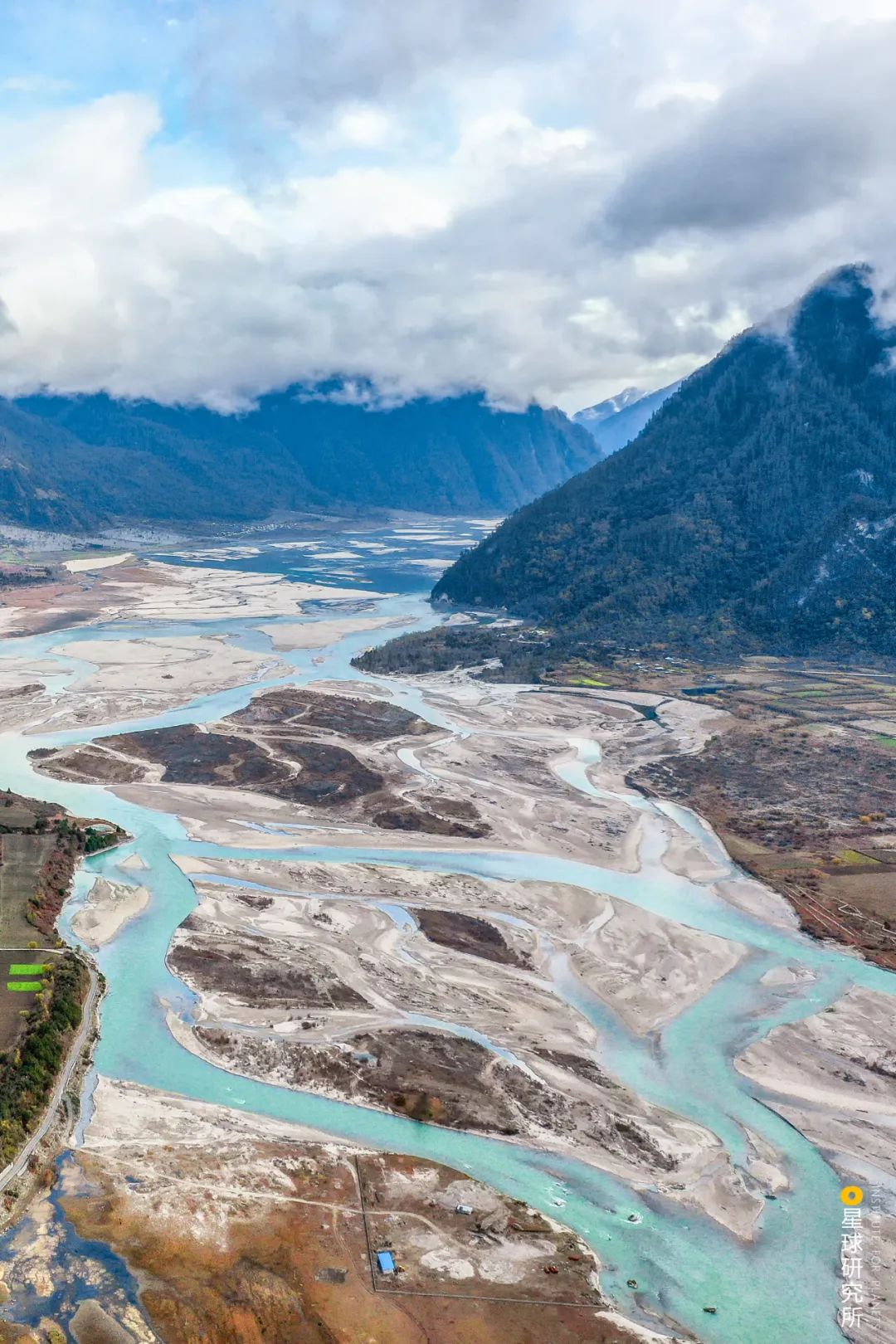
Add an increase in evaporation caused by increased temperature
Lakes in these areas gradually shrink
Even facing disappearance
(La'on, Tibet, has a dense lake shoreline. This is the characteristics of the shrinking lake, photographer@()
also
Climate warming can also lead to accelerated ablation of glaciers
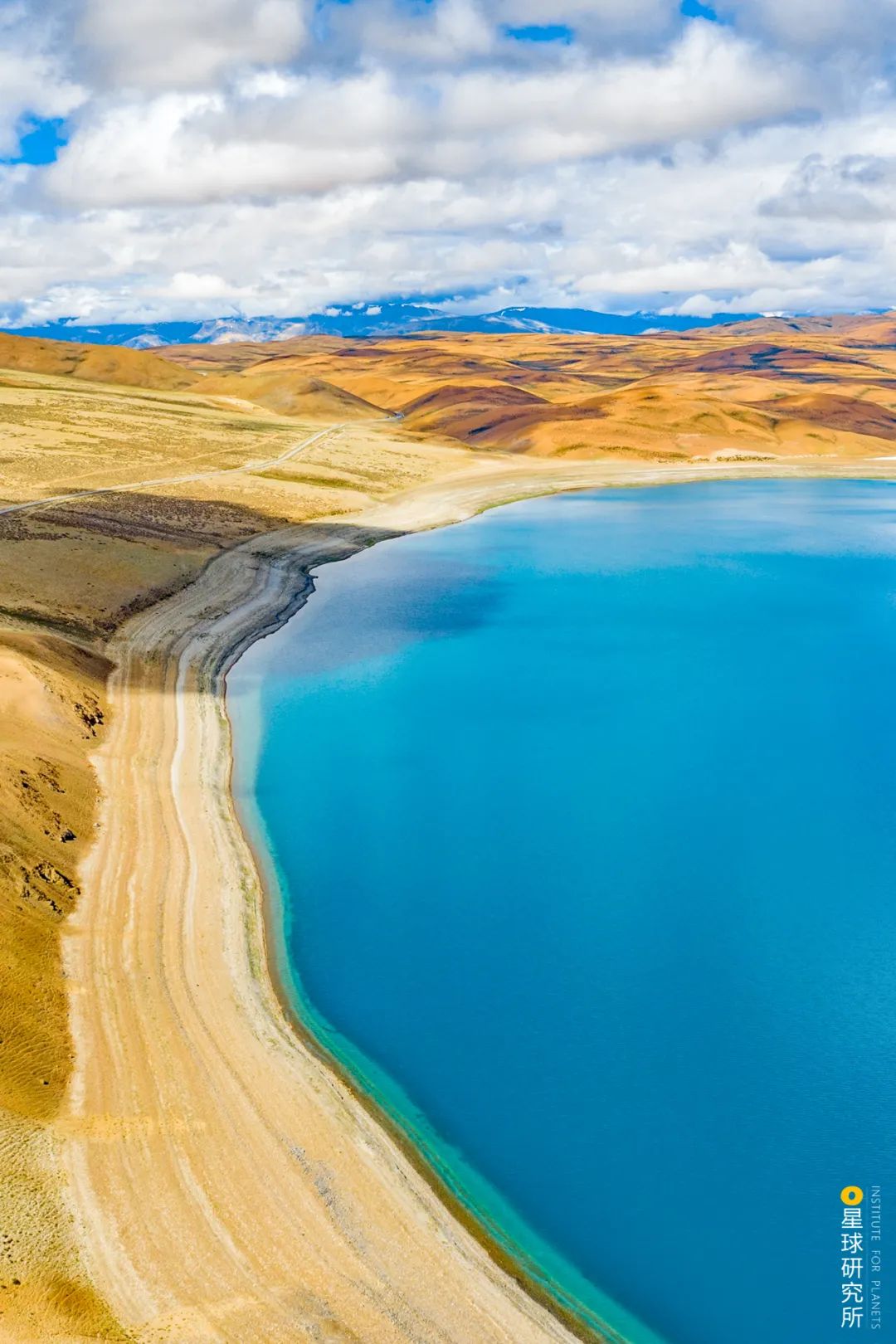
The debris originally sealed inside and the bottom of the glacier
Get out of the ice and snow melting water
Increase rainfall and increase the frequency of rainfall
It also allows flowing water to carry more debris
Water flow in the lake will become more and more turbid
(The turbid flowing water below the ancient glacier is located in Changdu, Tibet, photographer@()
Coupled with the temperature rise
The growth environment of the lake has been improved

The reproduction of many microorganisms is therefore accelerated
These factors will make many lakes
Lost the original purity
Blue disappears
(Yongba Yongwu, located in Shigatse, Tibet; the lake nearby is green and slightly turbid due to the more sand content of the mud, which is contrast with the cleaner blue lake water in the distance. Photographer@(()
The most easily affected
It is thousands of small lakes on the Qinghai -Tibet Plateau
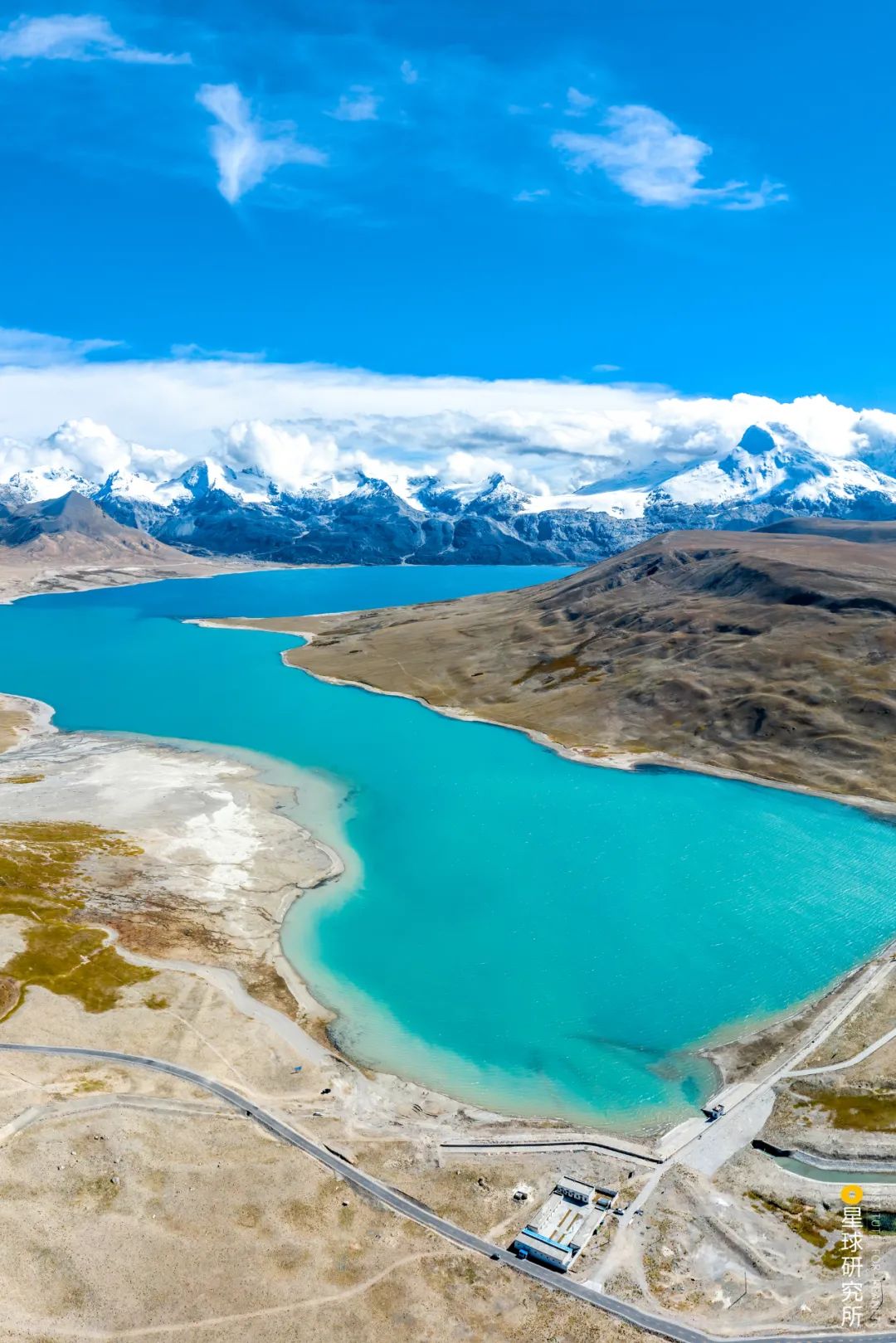
But the big lake is not unreasonable
For nearly 20 years
The area is greater than 50 square kilometers
152 Qinghai -Tibet Plateau lakes
Although its transparency is rising as a whole
But there are still 18 lakes' transparency
A significant decline appeared
Qinghai Lake, Sedling Wrong, etc. are all among them
future
Many lakes on the Qinghai -Tibet Plateau
It will continue to be deeply affected by global warming
And it is difficult for us to accurately predict
The future changes of these blue -Tibet plateau blue
(A lake above the Pamir Plateau is located in the autonomous prefecture of Kizilu Sukirkiz, Xinjiang, and is often called "Baisha Lake" because of Baisha in the shore of the lake.
But one thing is certain
Sensitive and changing
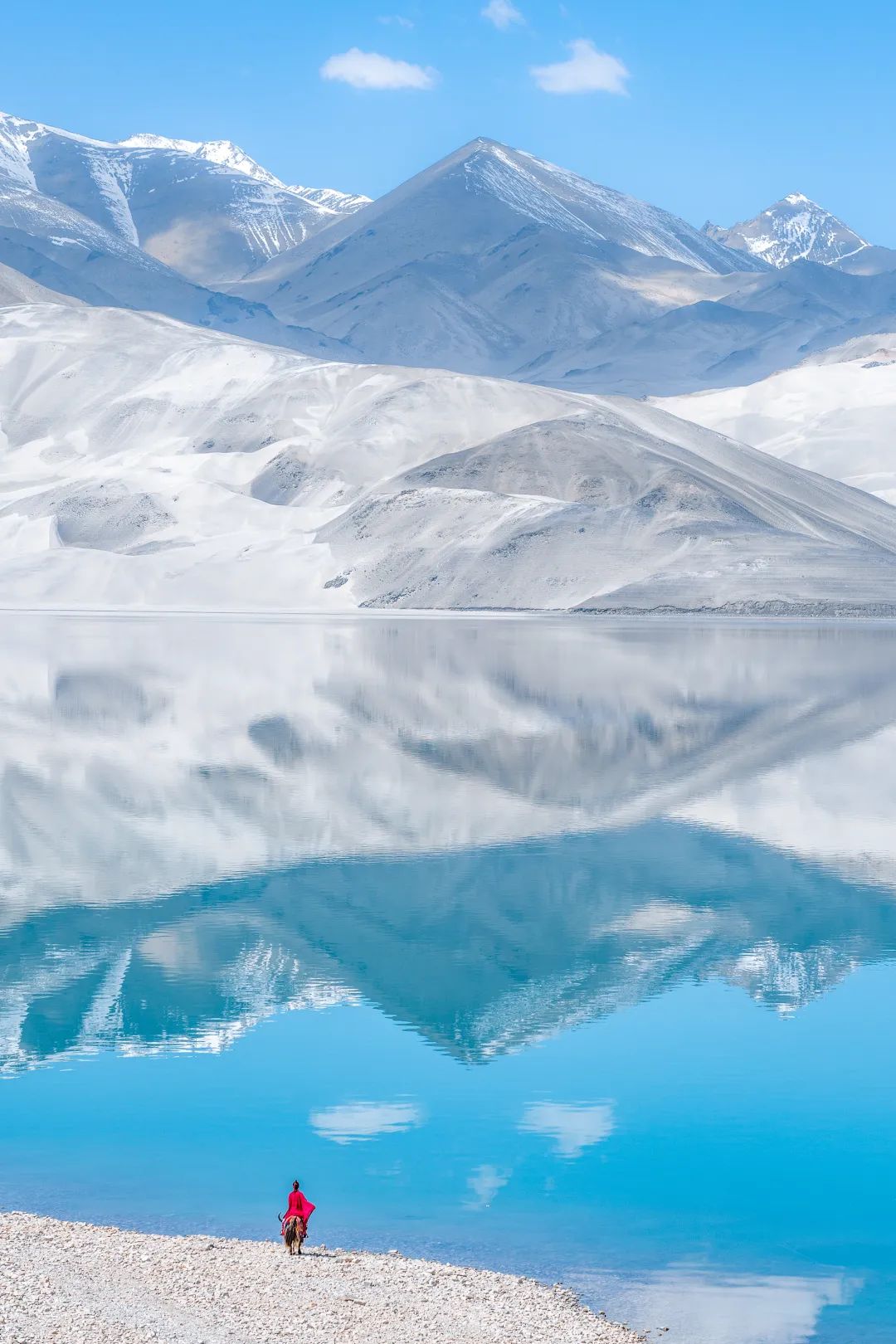
It's hard to look like we are familiar with
And their current beauty
It will also become our beautiful memories in the future
(Please watch horizontal screen, Qinghai Lake, photographer@()
Expert support team in this article
Second Qinghai -Tibet Science Examination Team
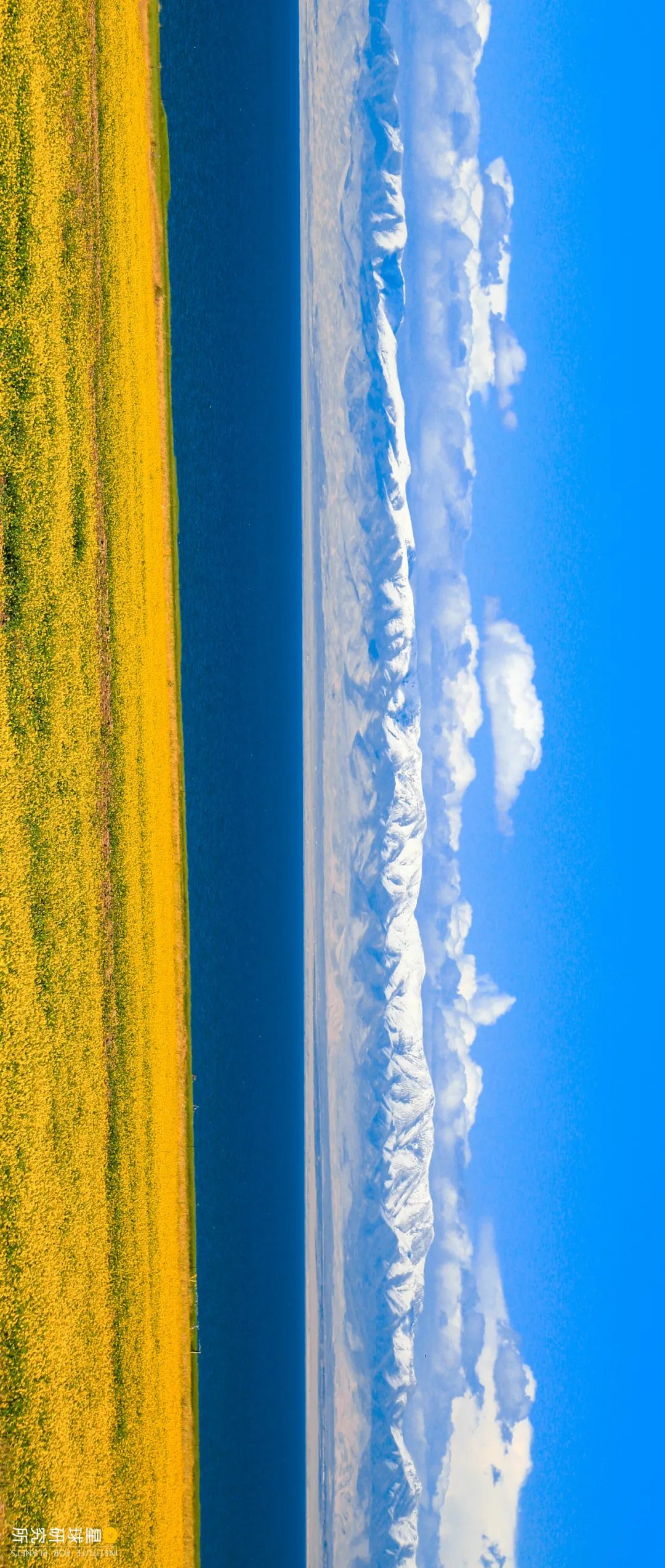
Yao Tandong, Zhu Liping, An Baosheng

Wang Junbo, Niu Yanbin, Wang Weicai, Li Jiule
Creation team in this article
Written article: Shanyuelou
Edit: Director, Yunwu Empty City
- END -
Hebi Meteorological Observatory lifted the thunderstorm and windy yellow warning [III class/heavier]
Hebi Meteorological Station was lifted at 8:5:00 on June 9, 2022 to relieve the thunderstorm and yellow warning signal issued at 3:22 June 9, 2022.
Early capital | Xiaomi responded to a fine of 21.76 million yuan by Italian institutions; TIKTOK replaced global security

Xiaomi responded to the fine of 21.76 million yuan by Italian institutions: the re...